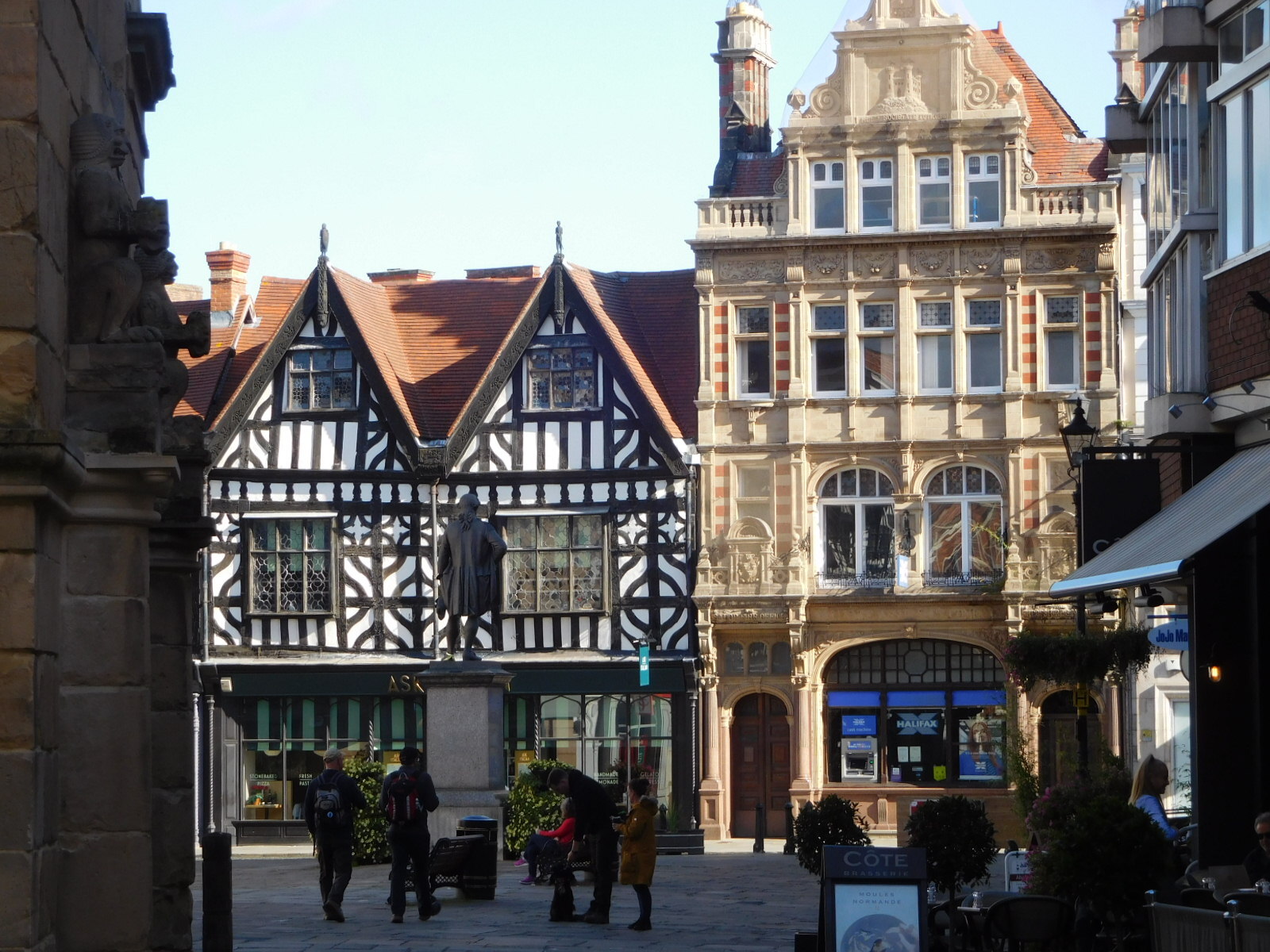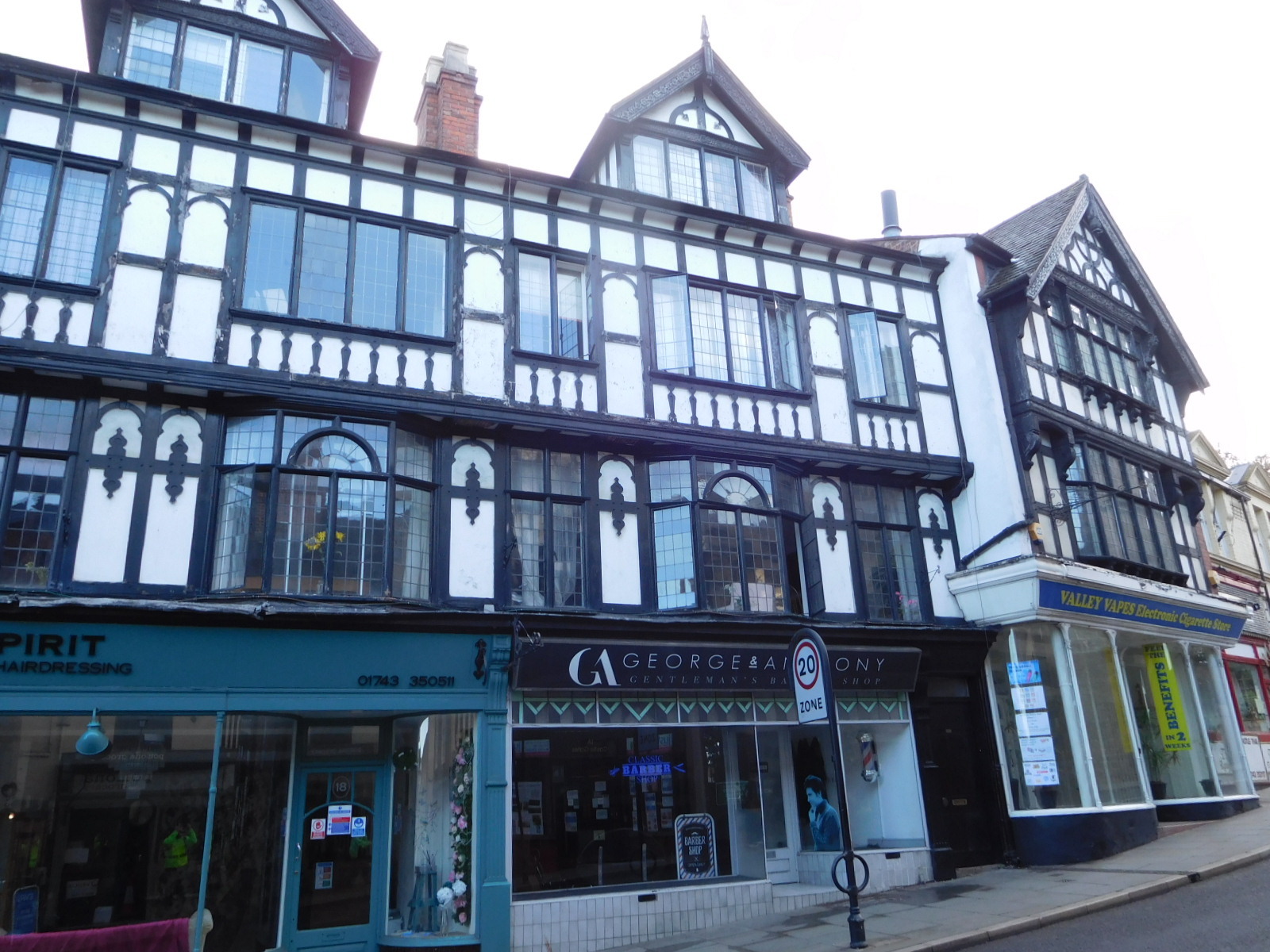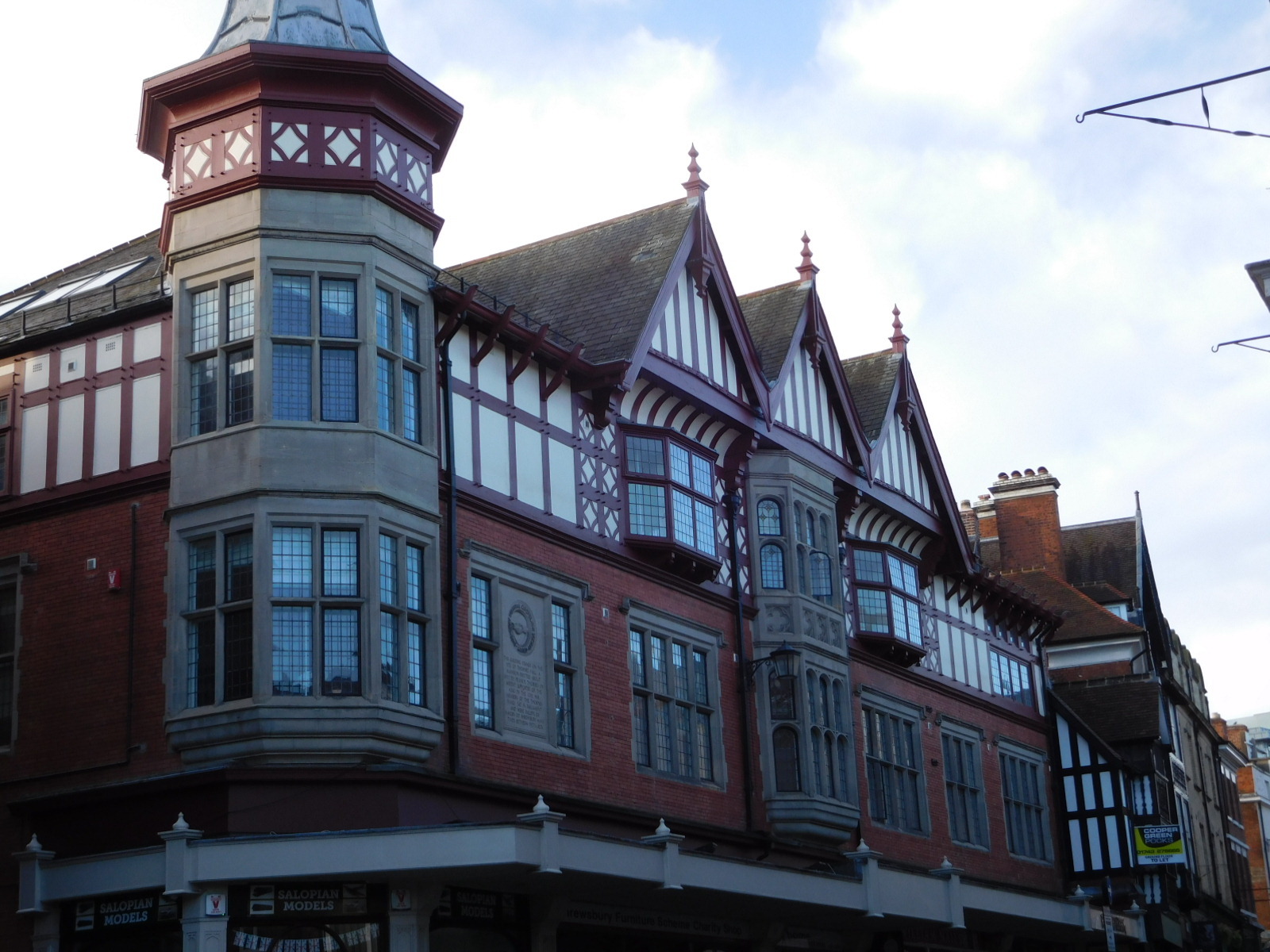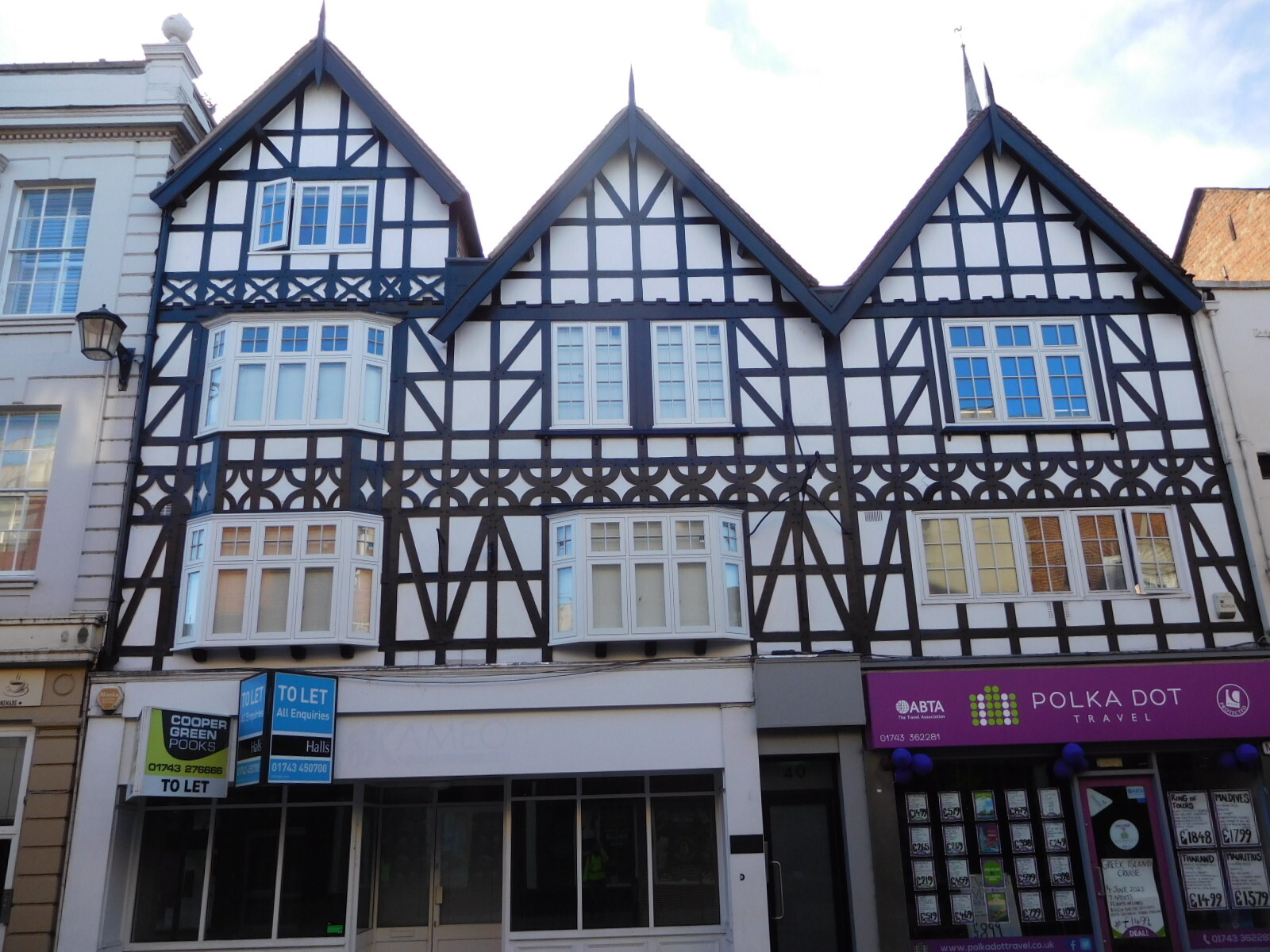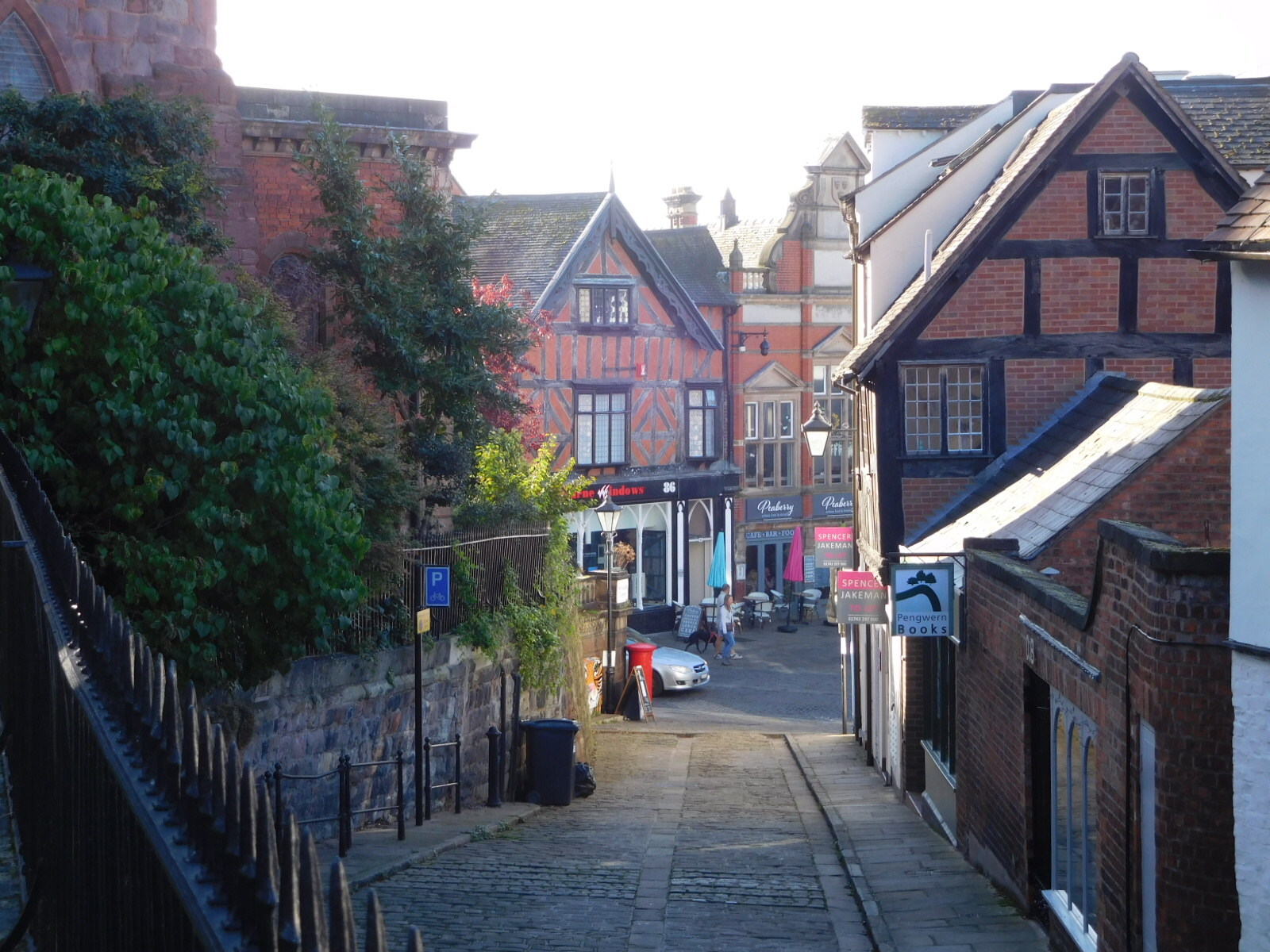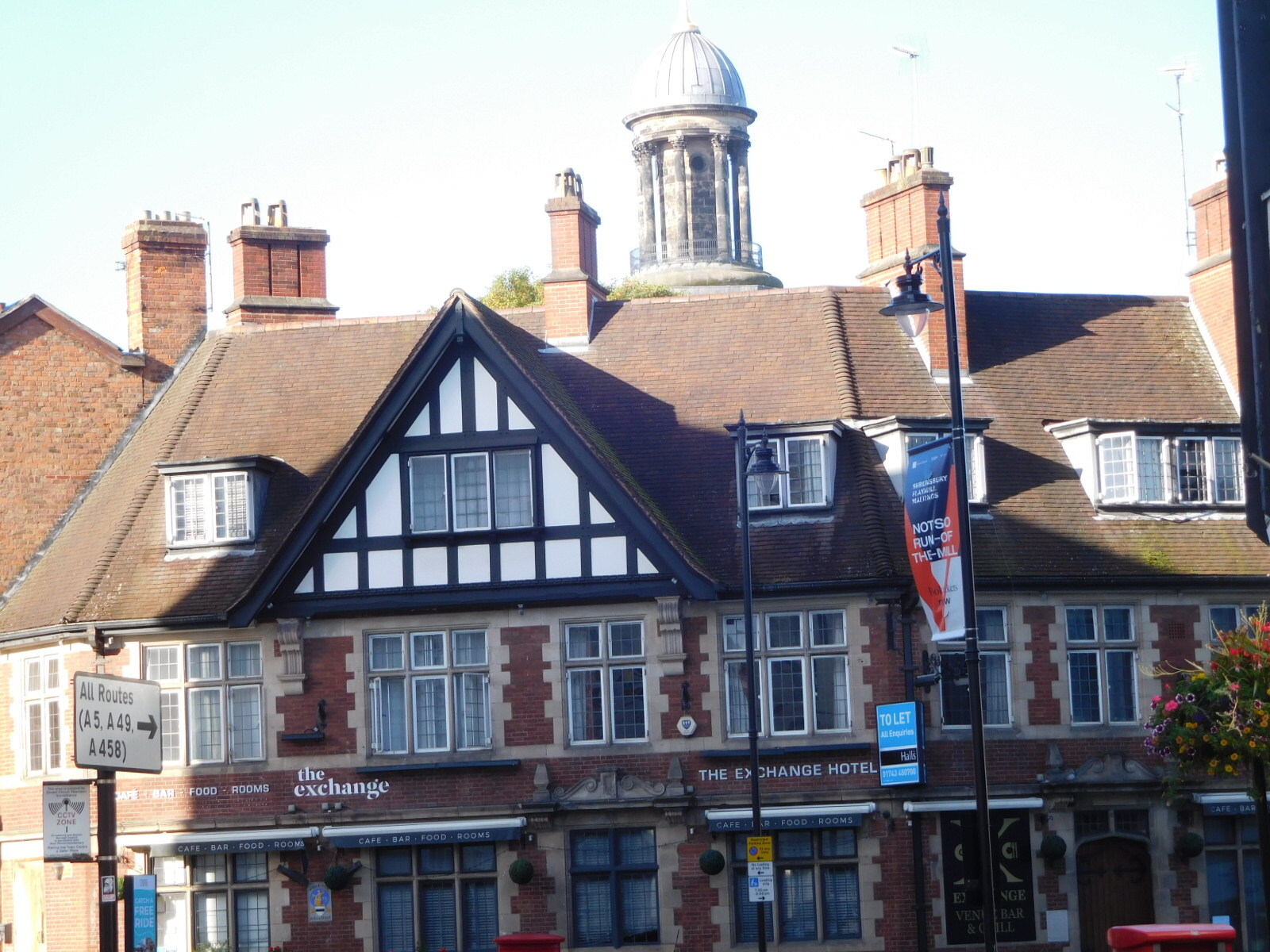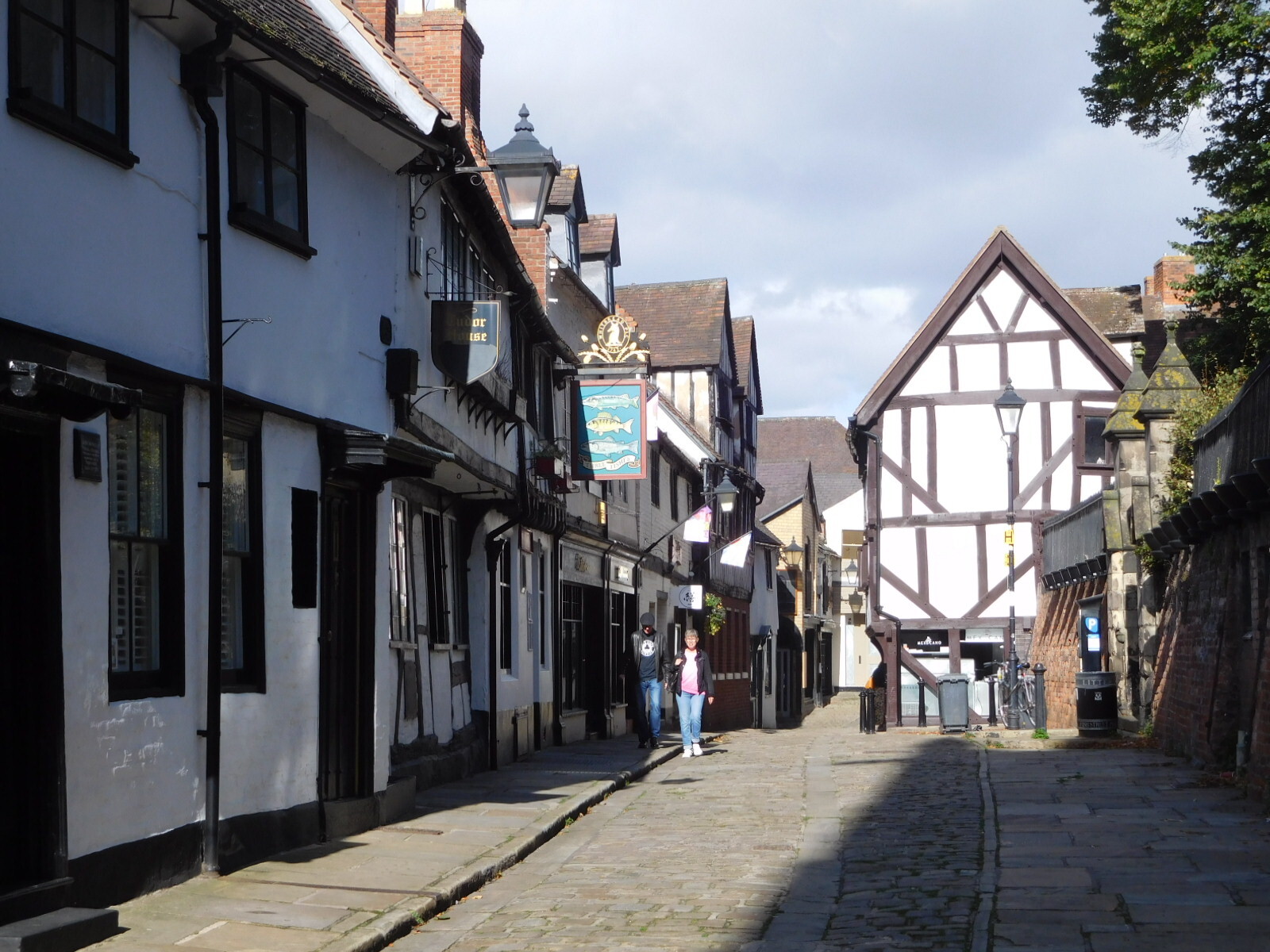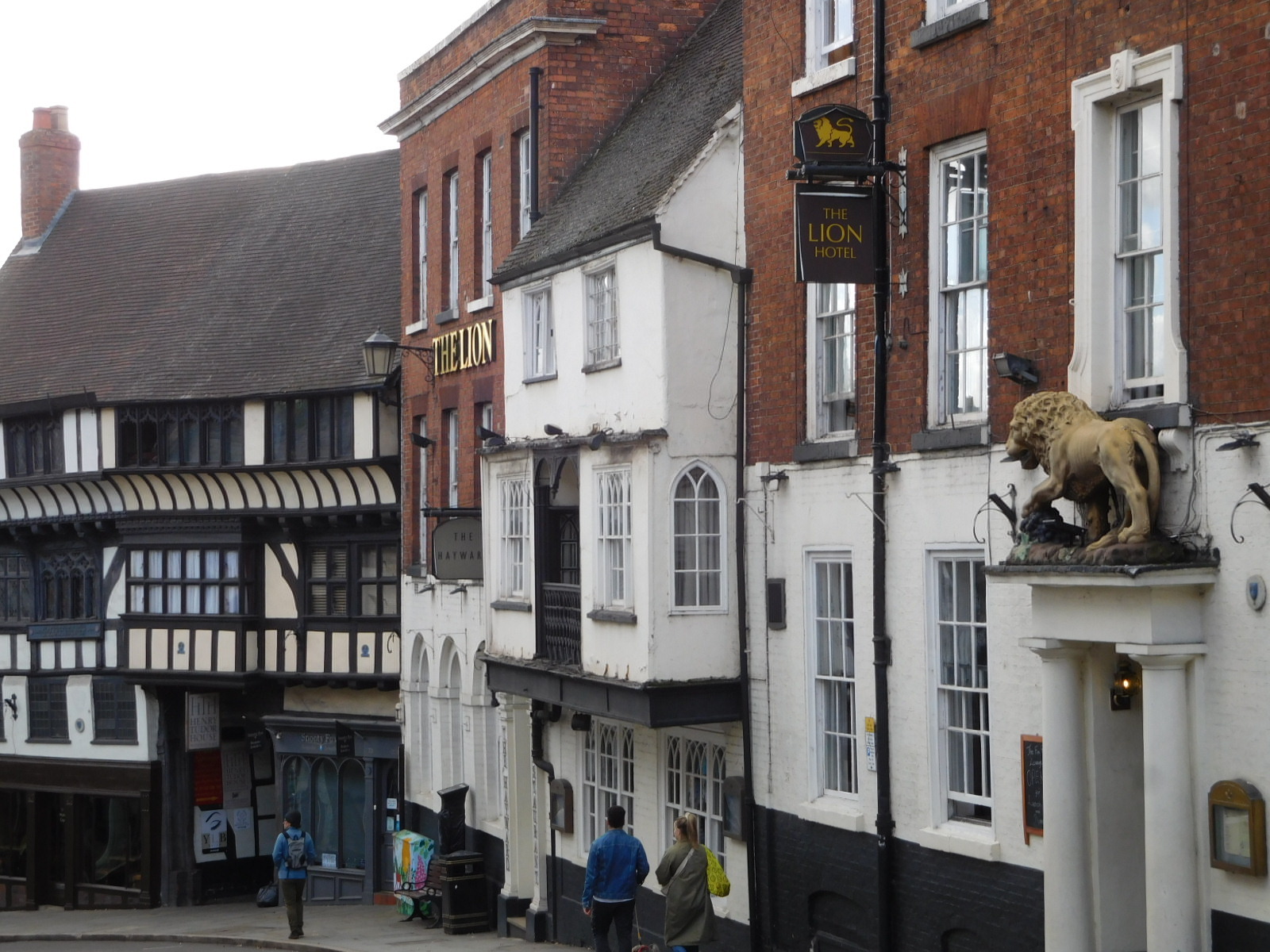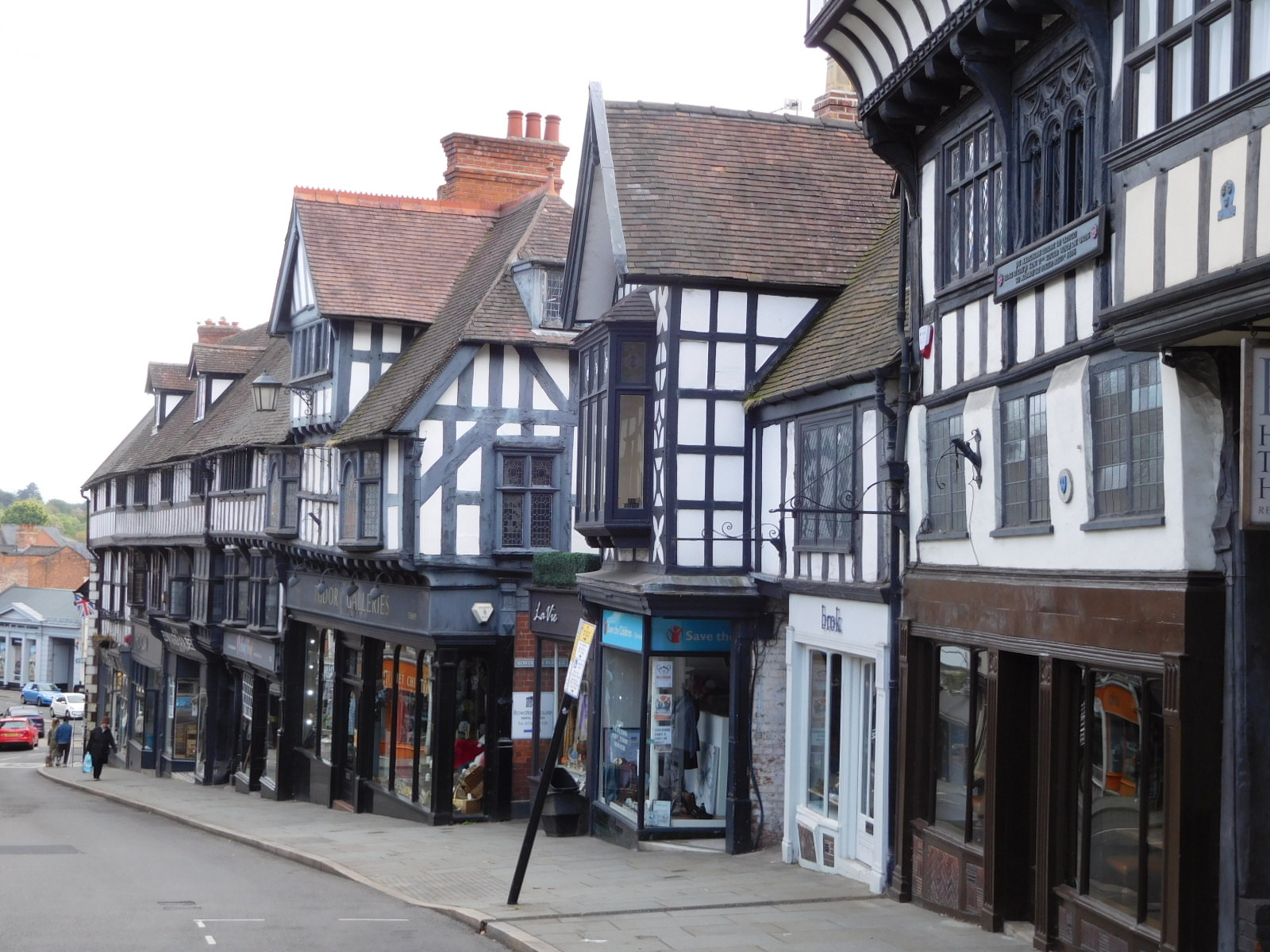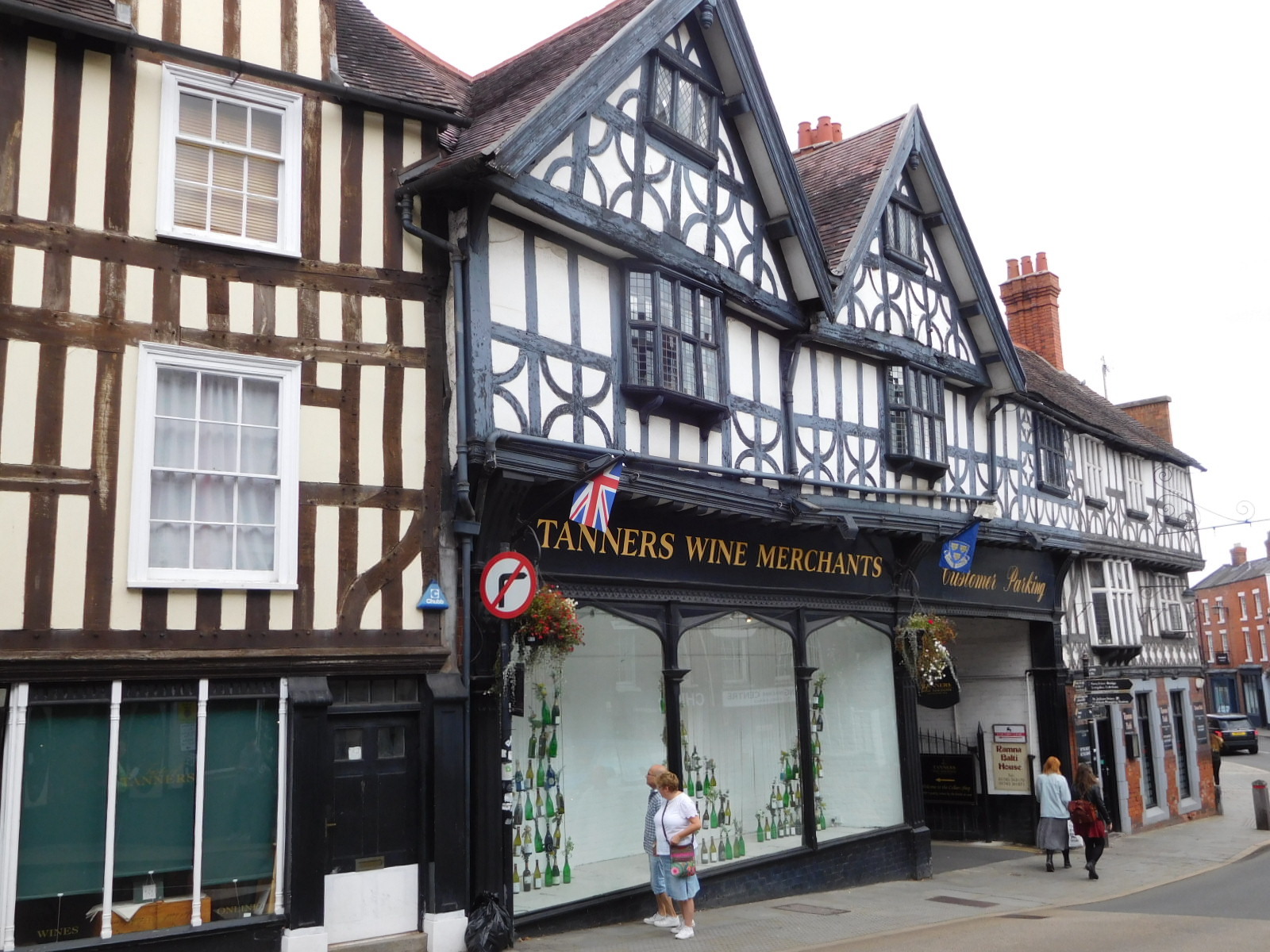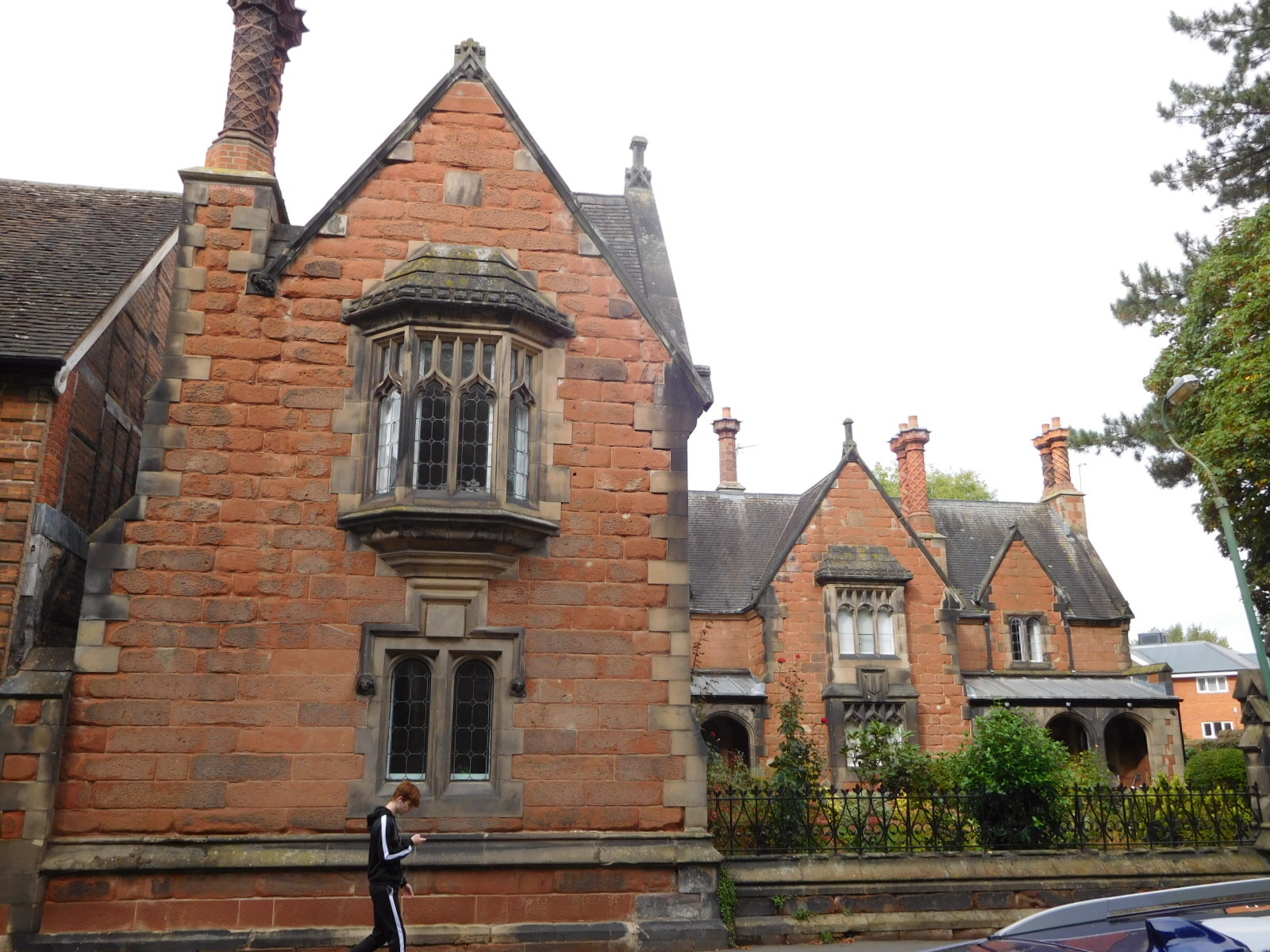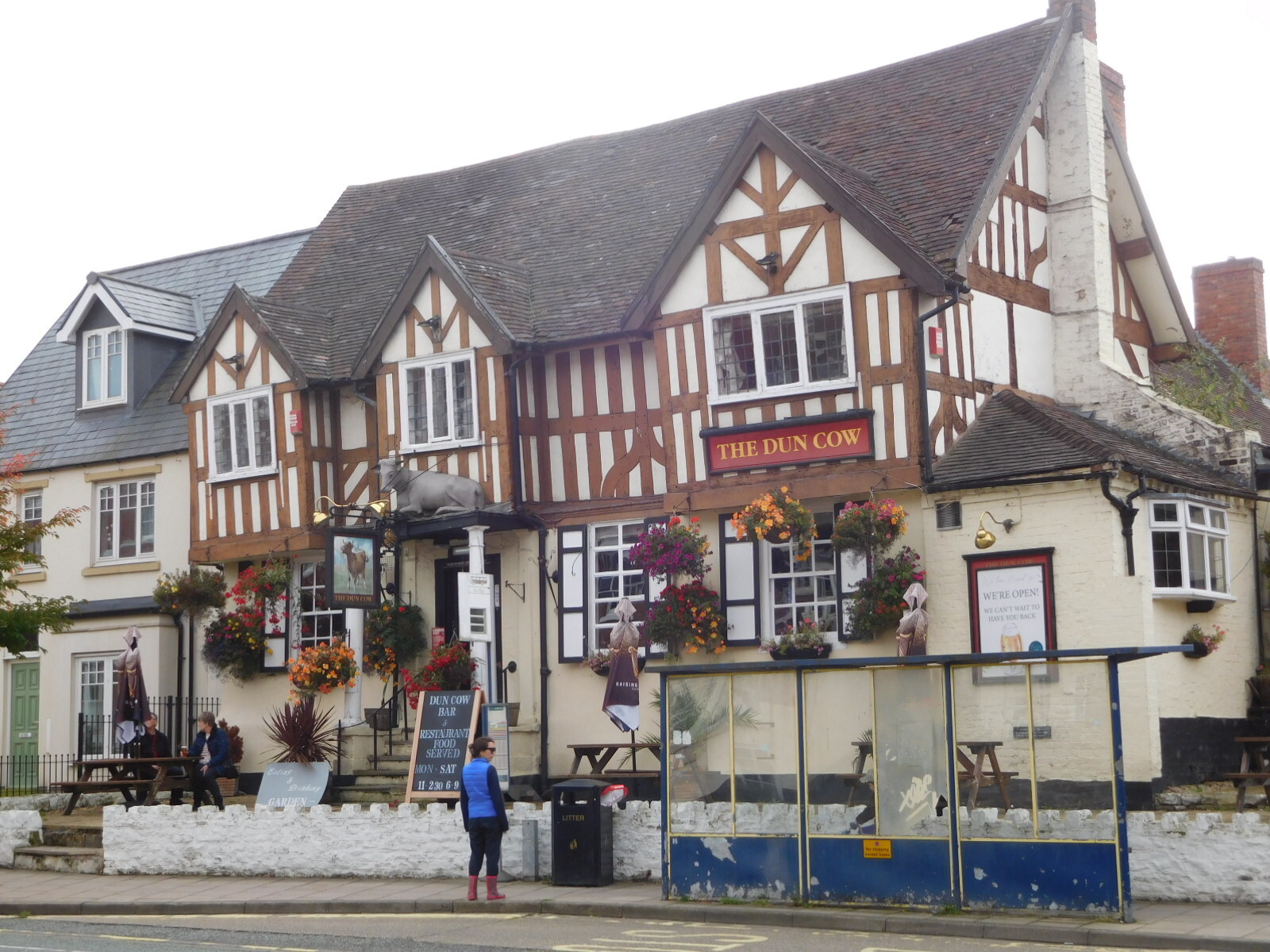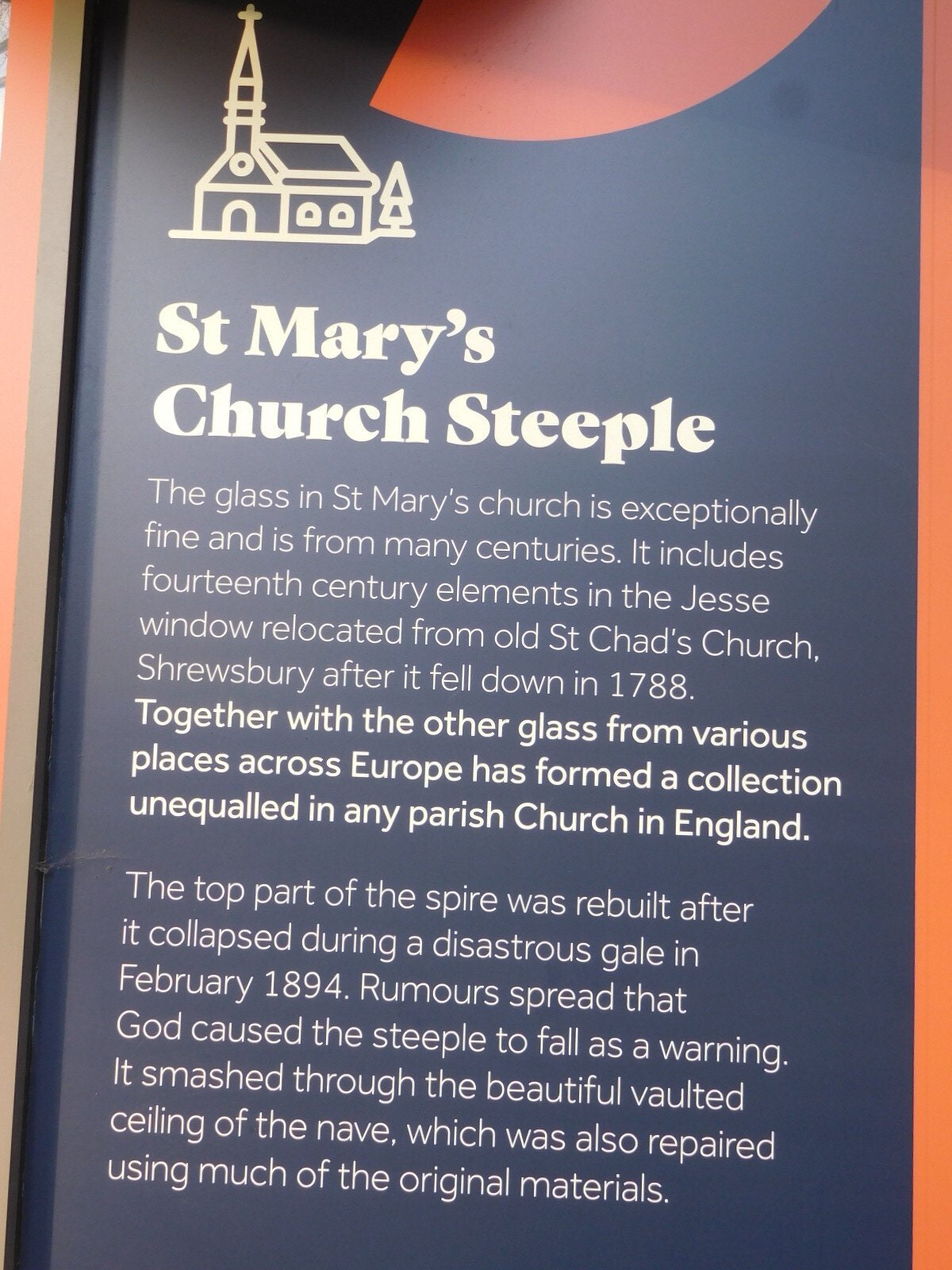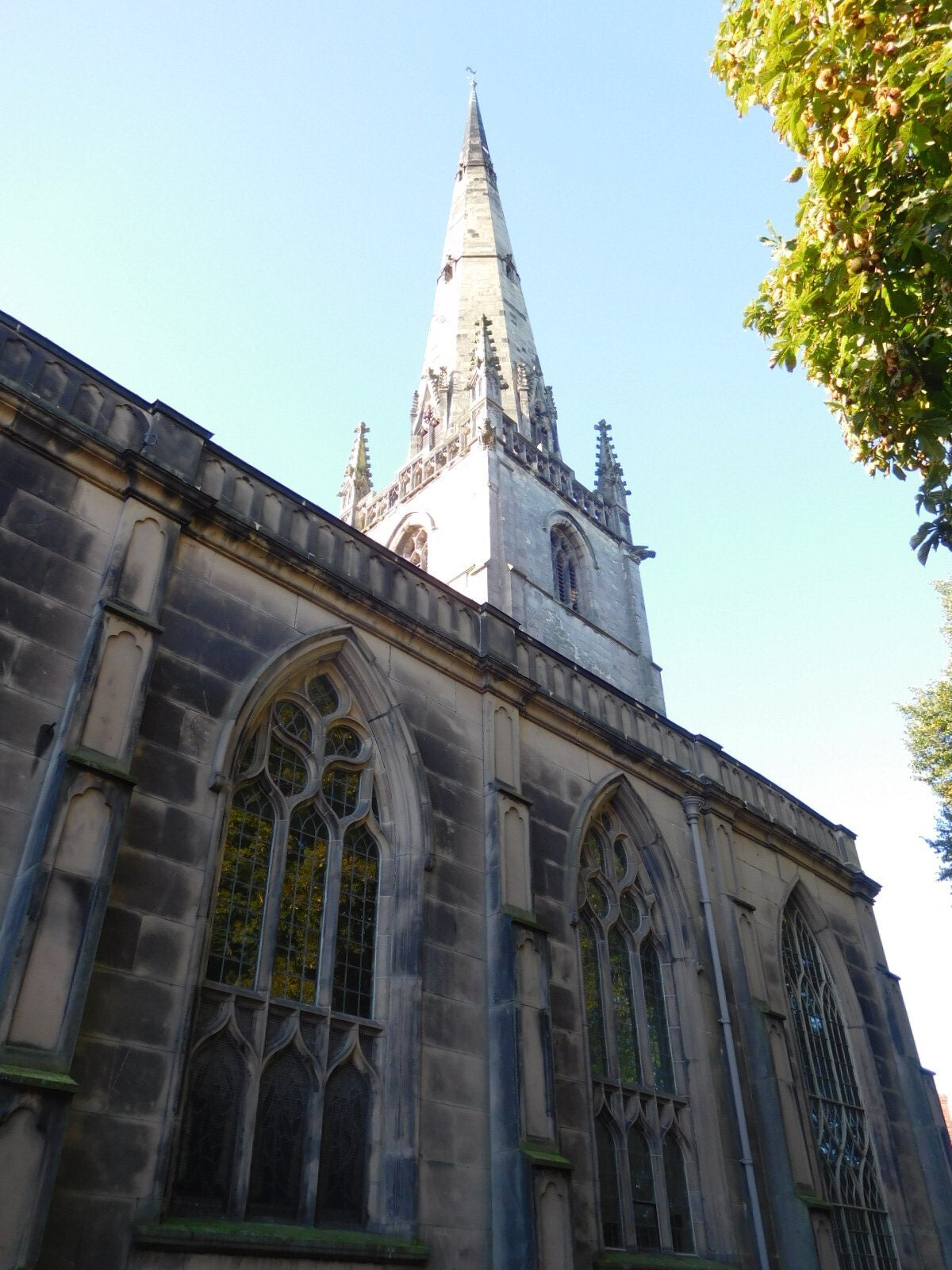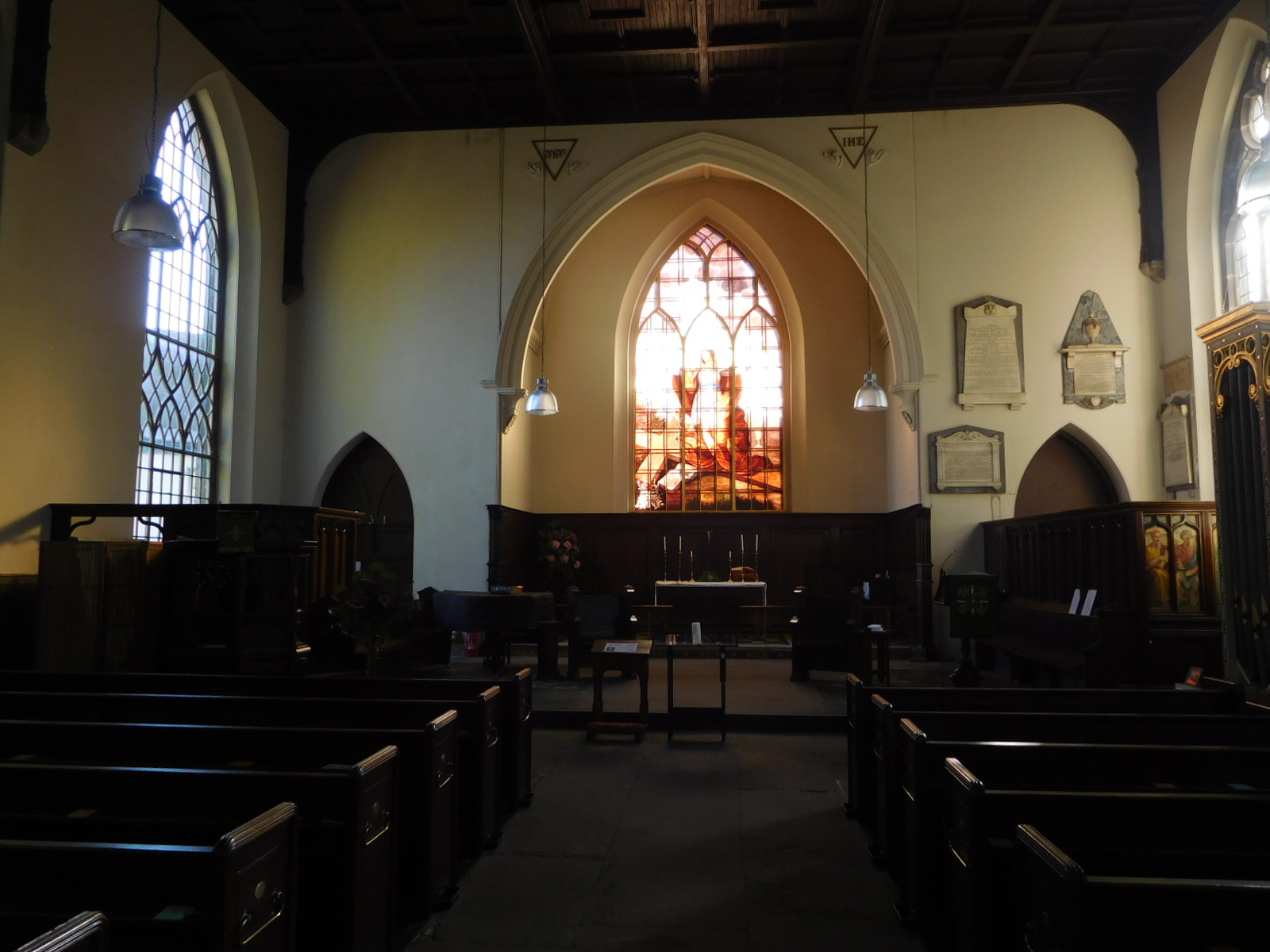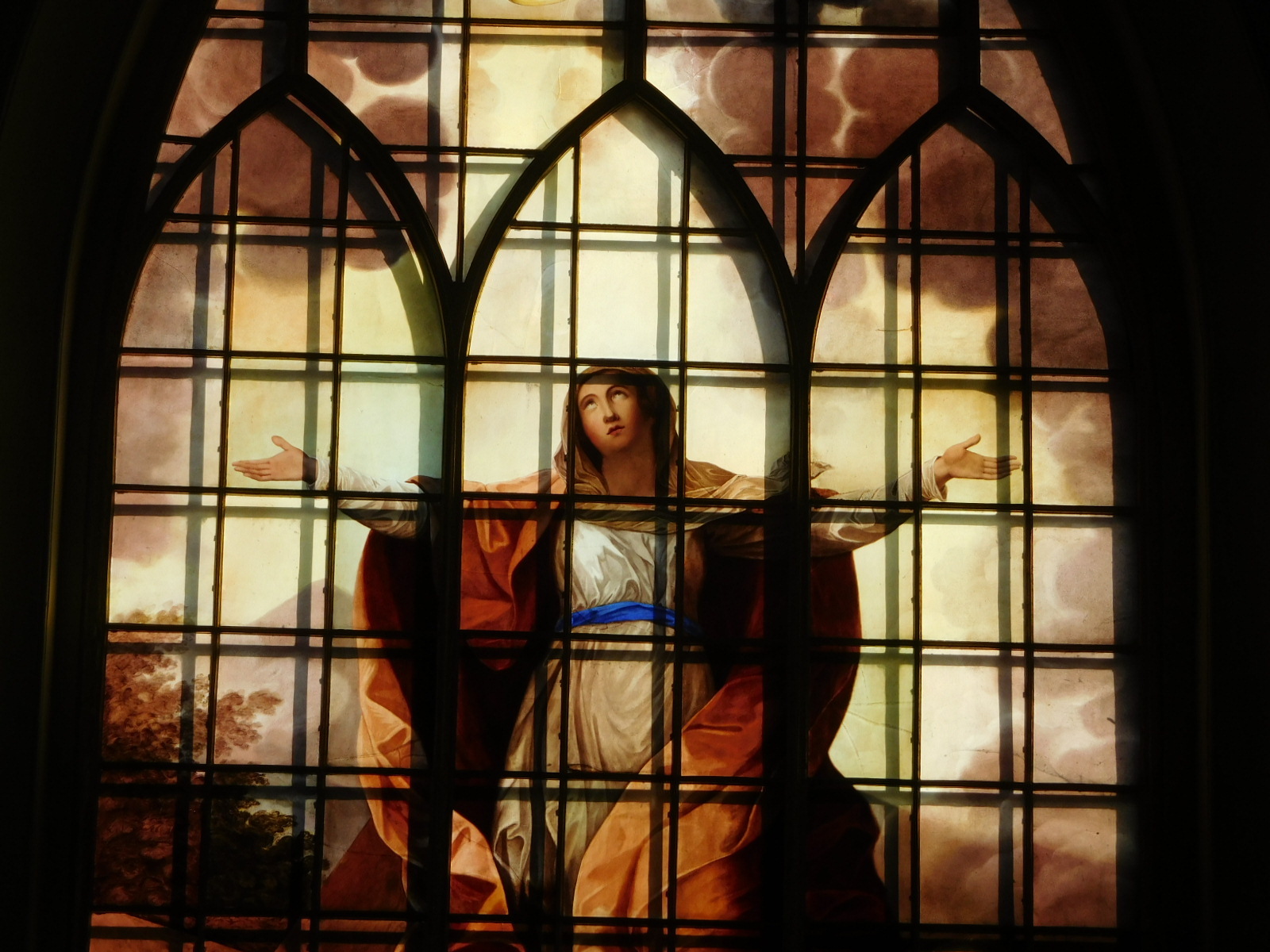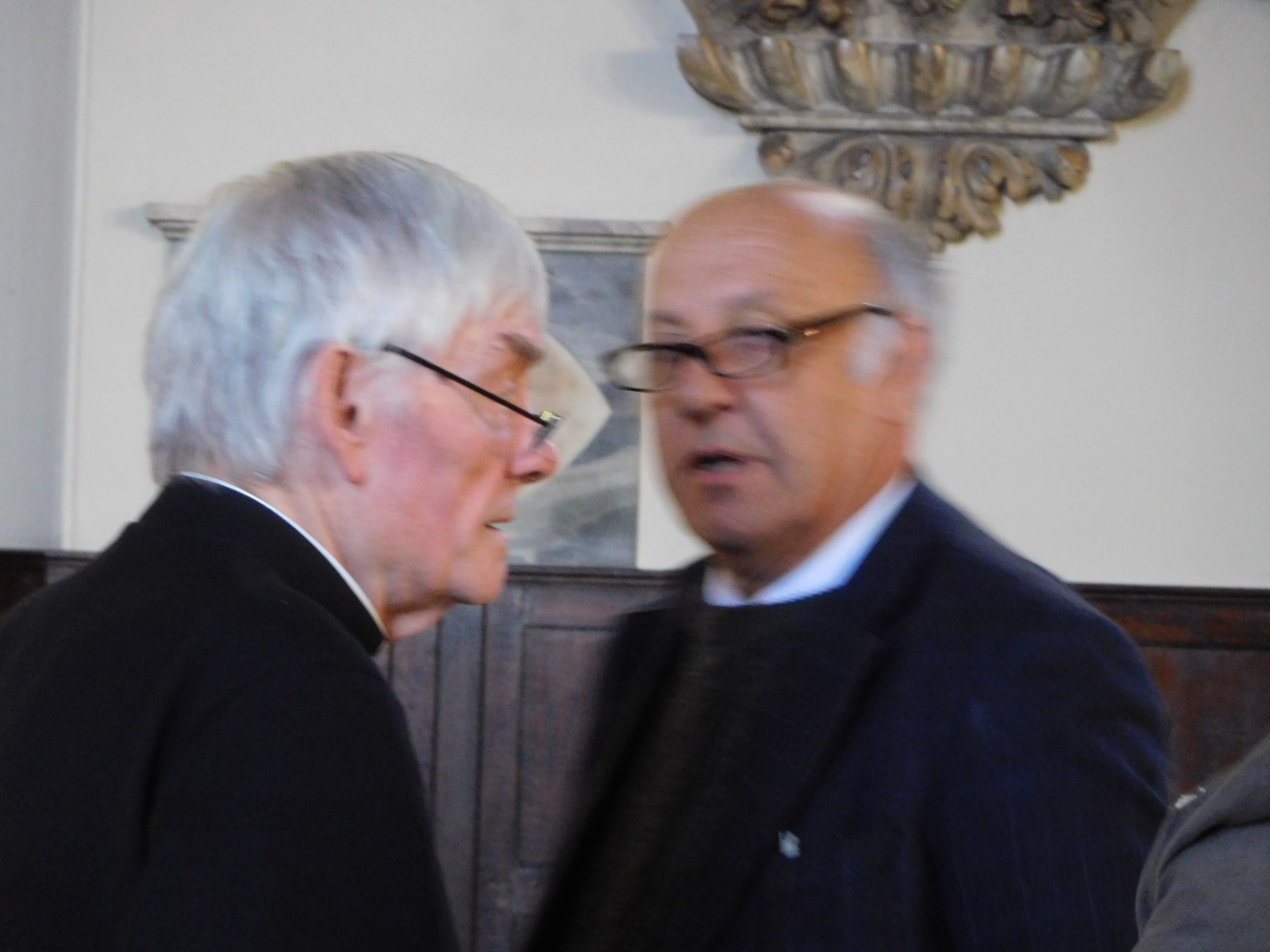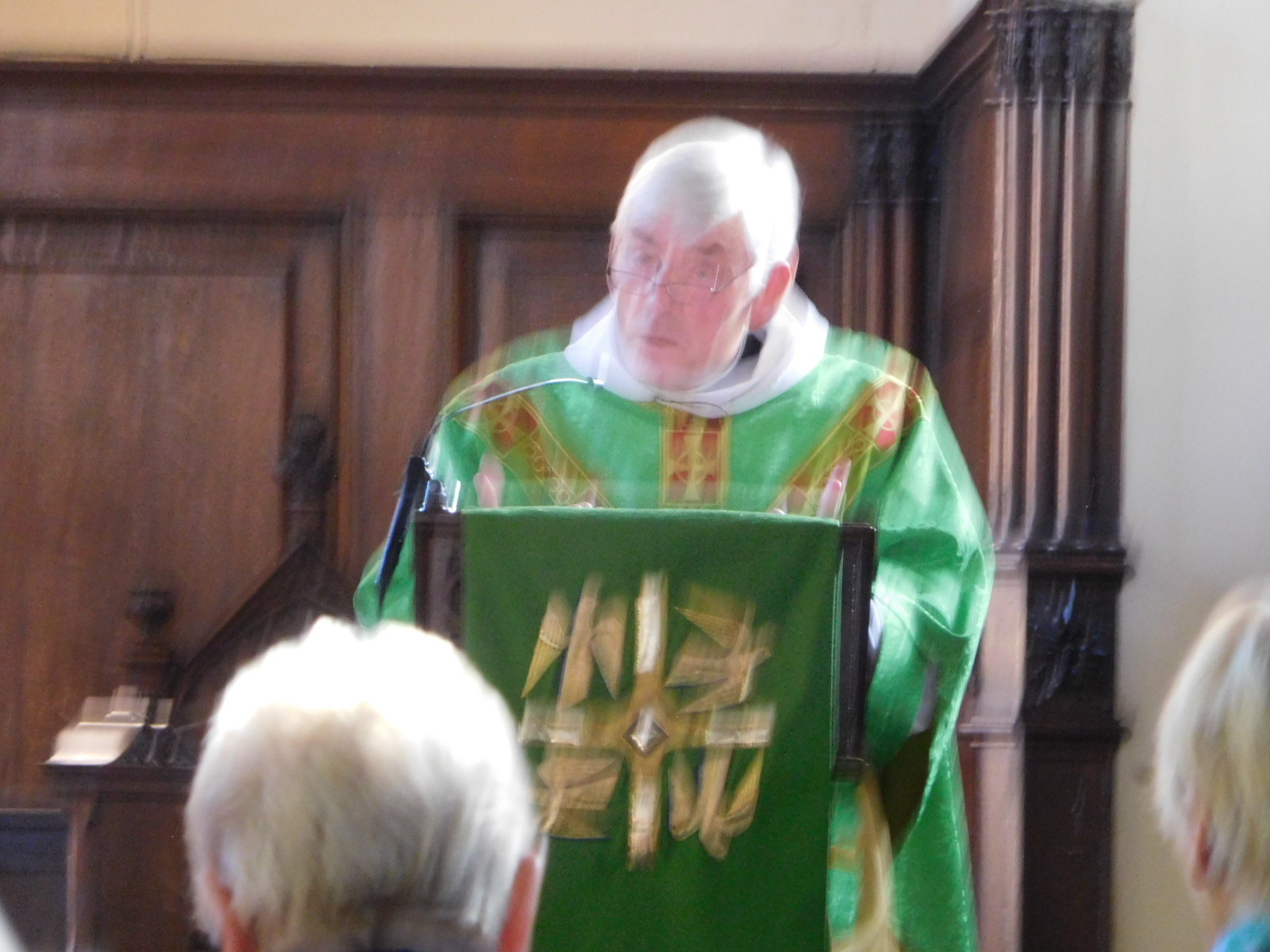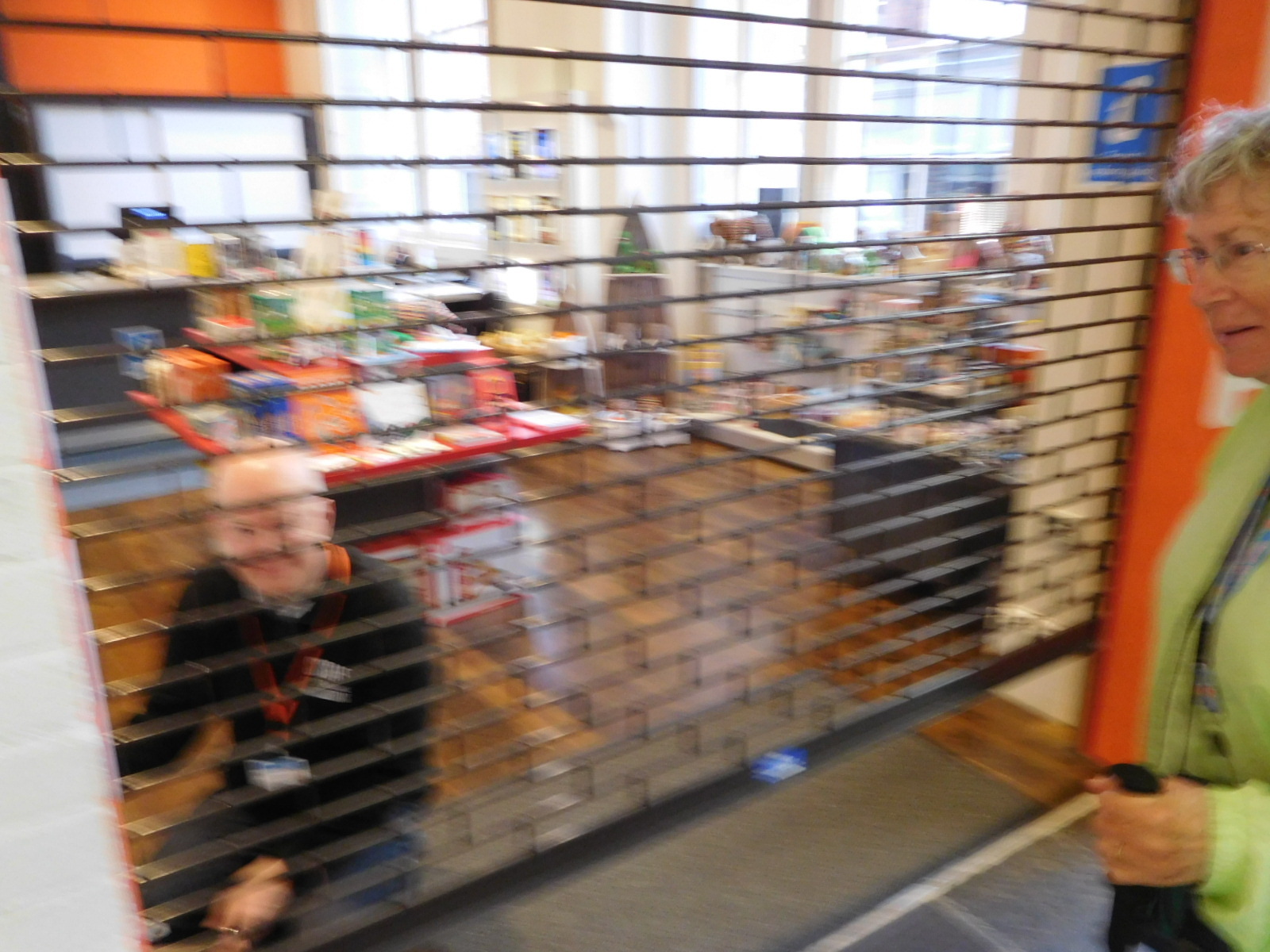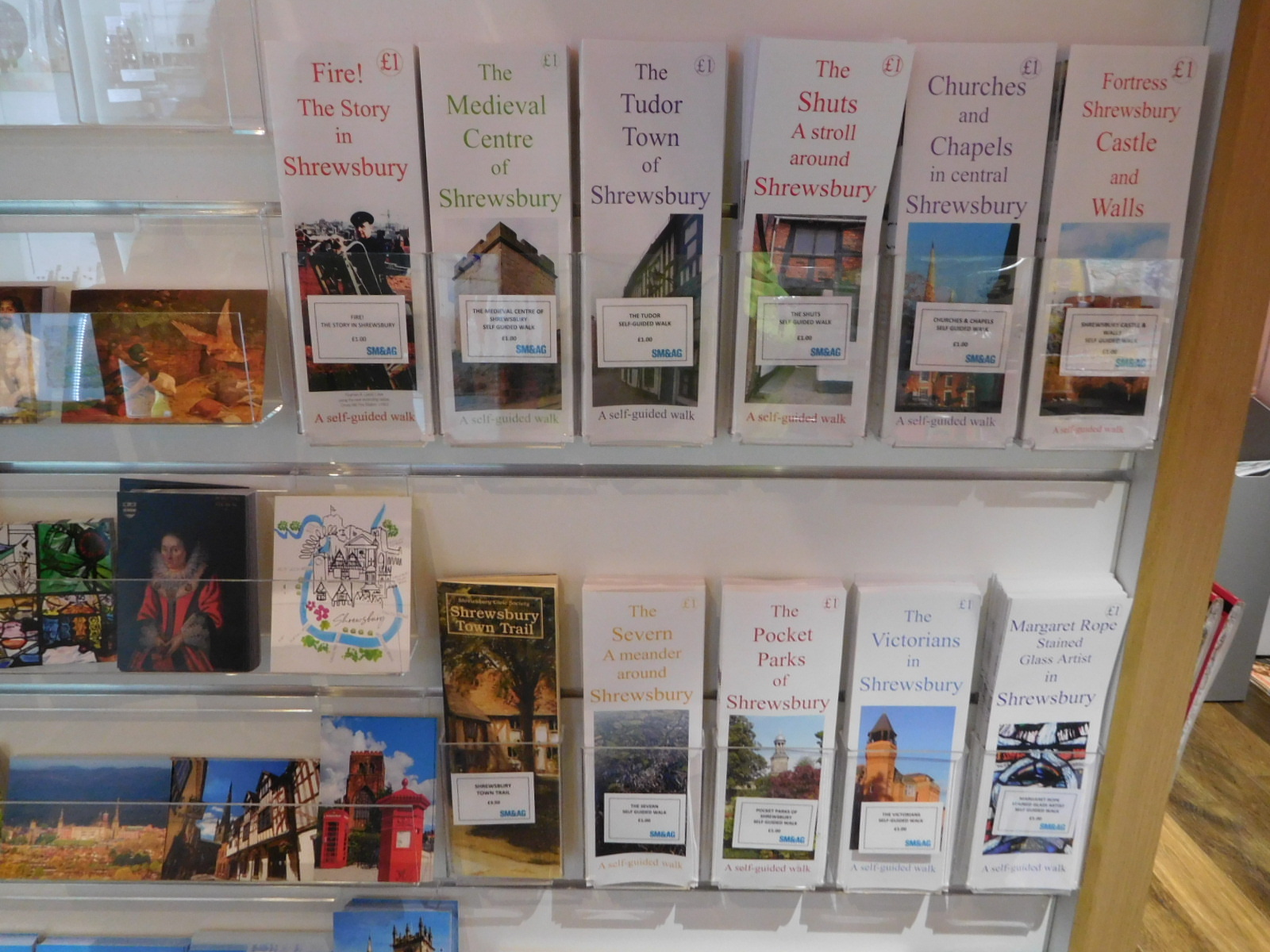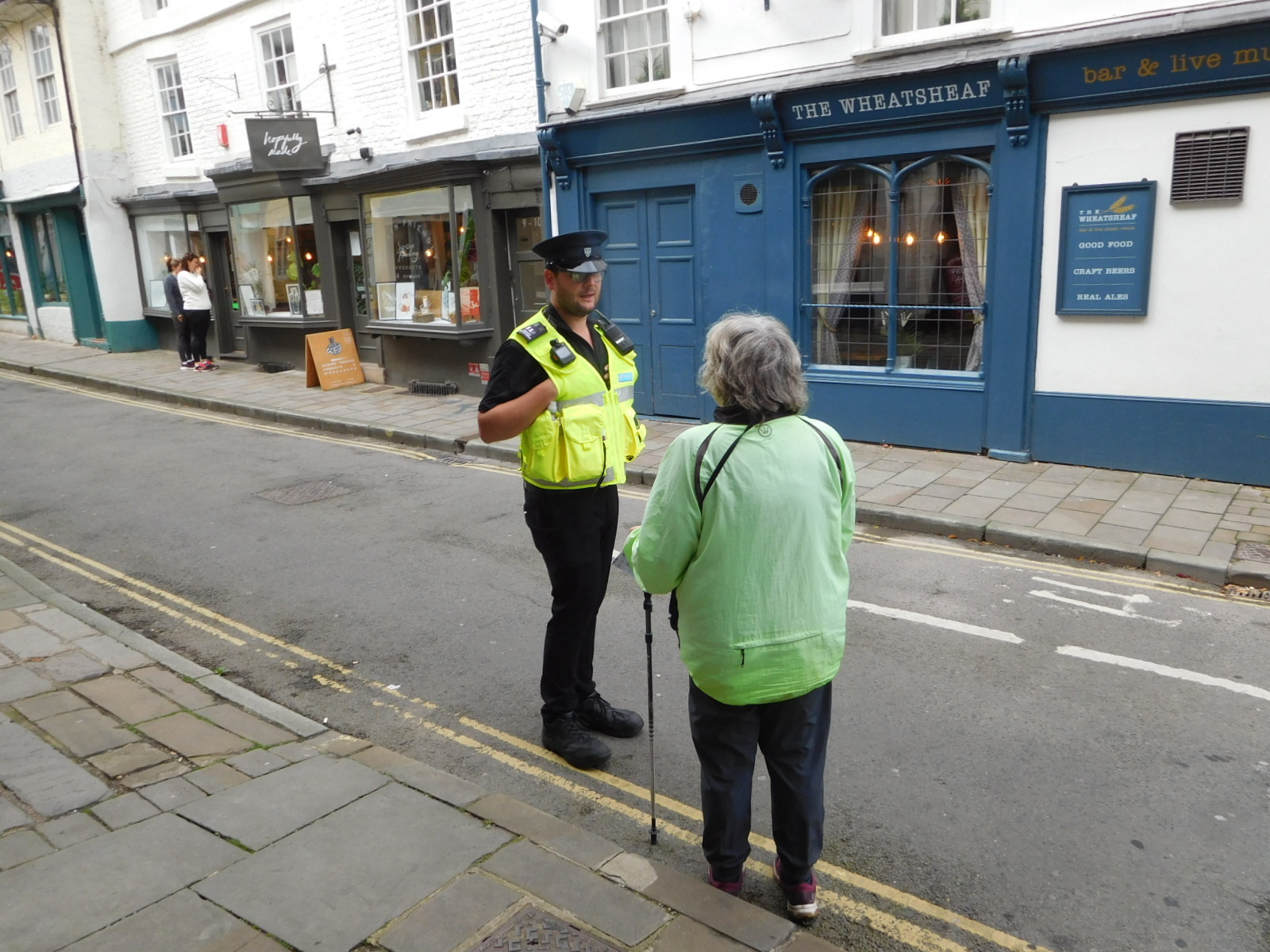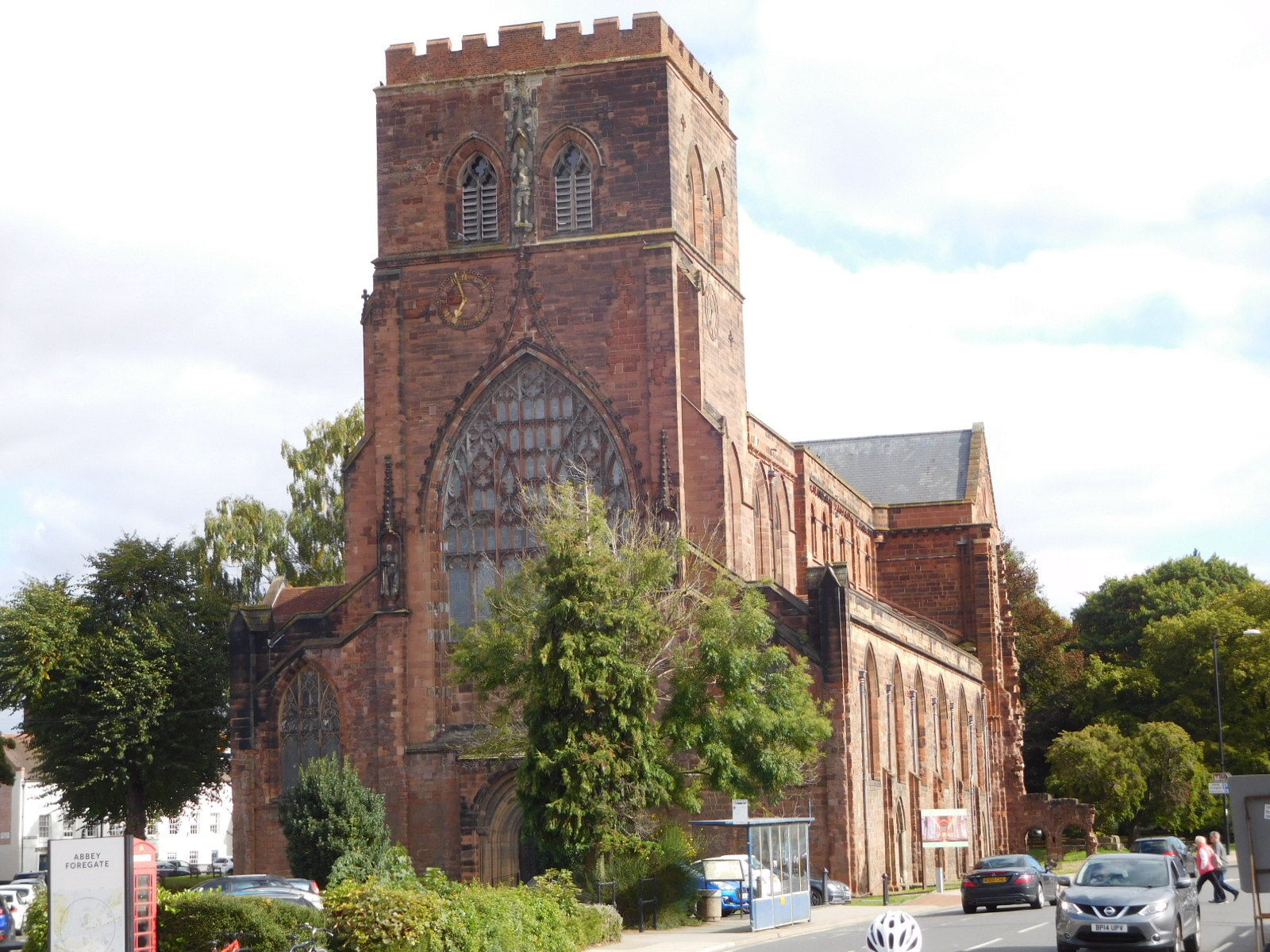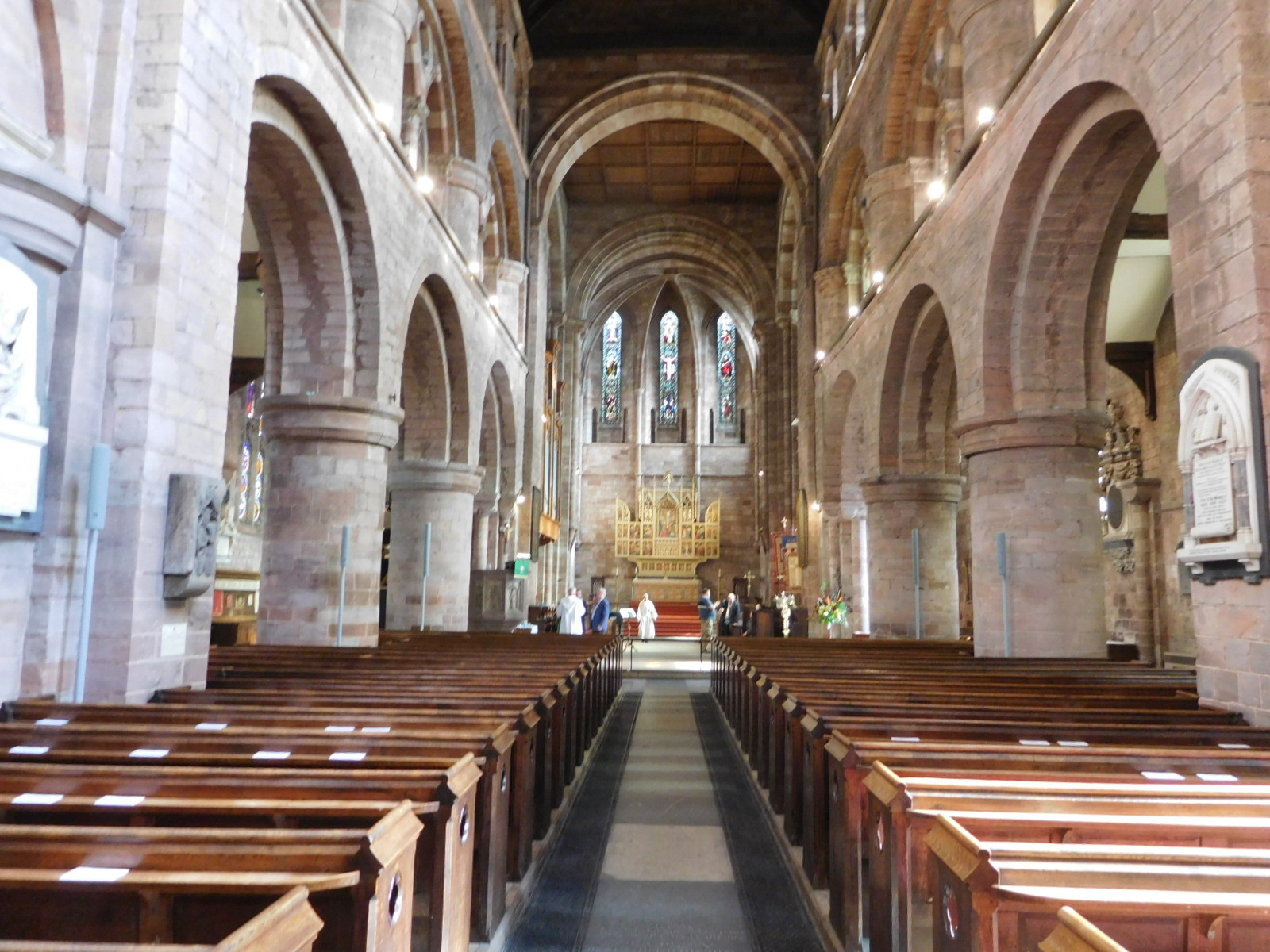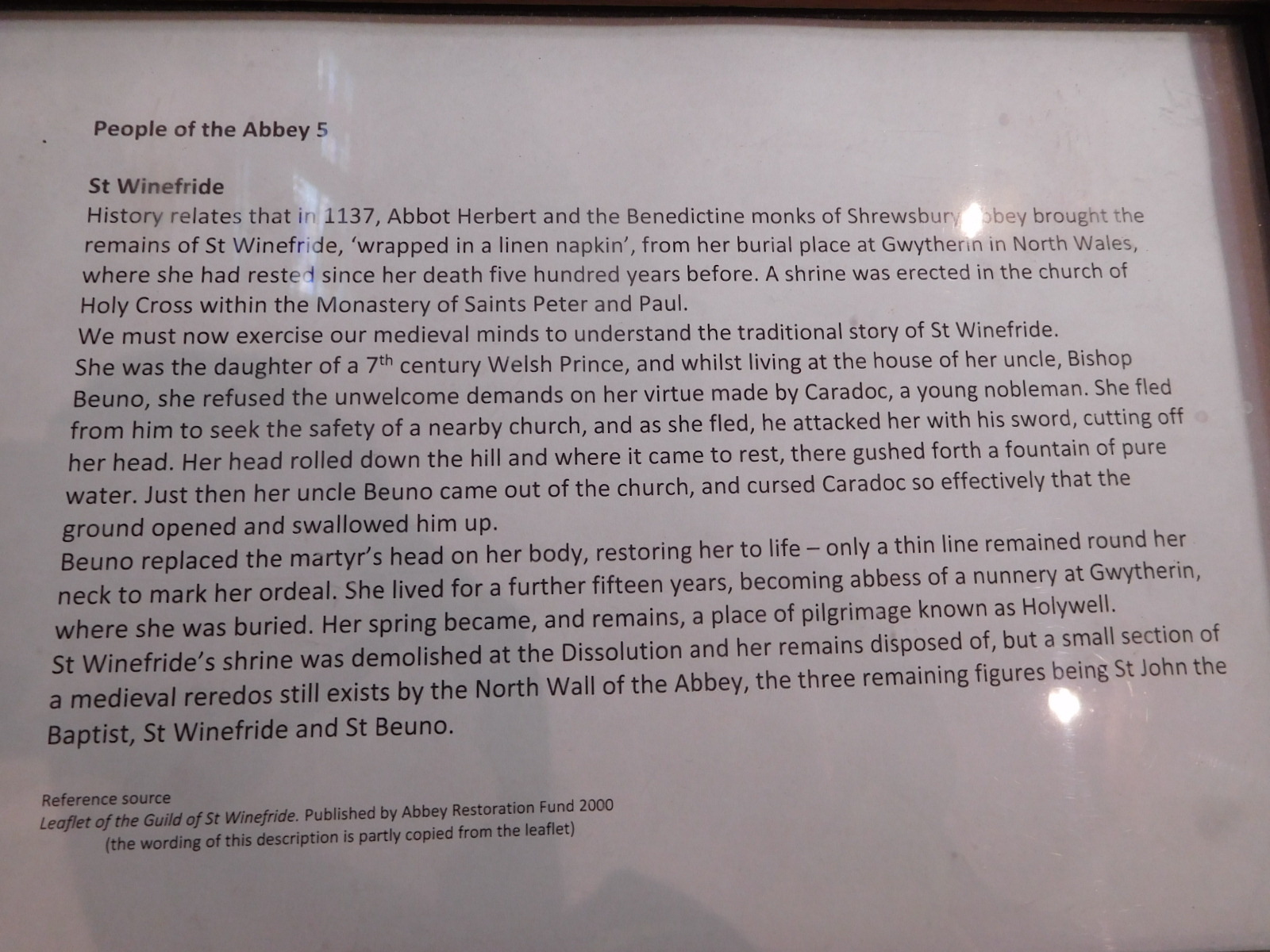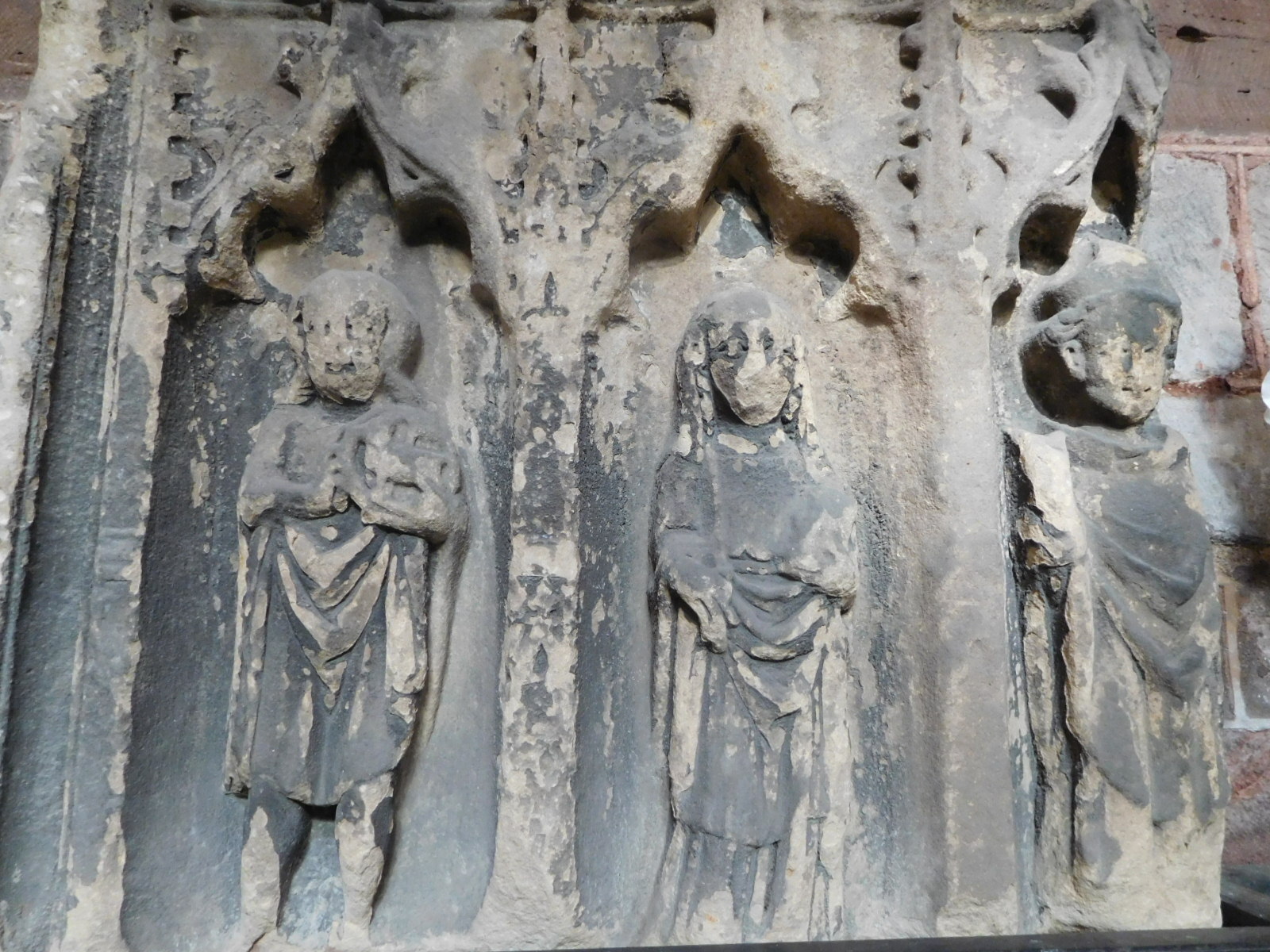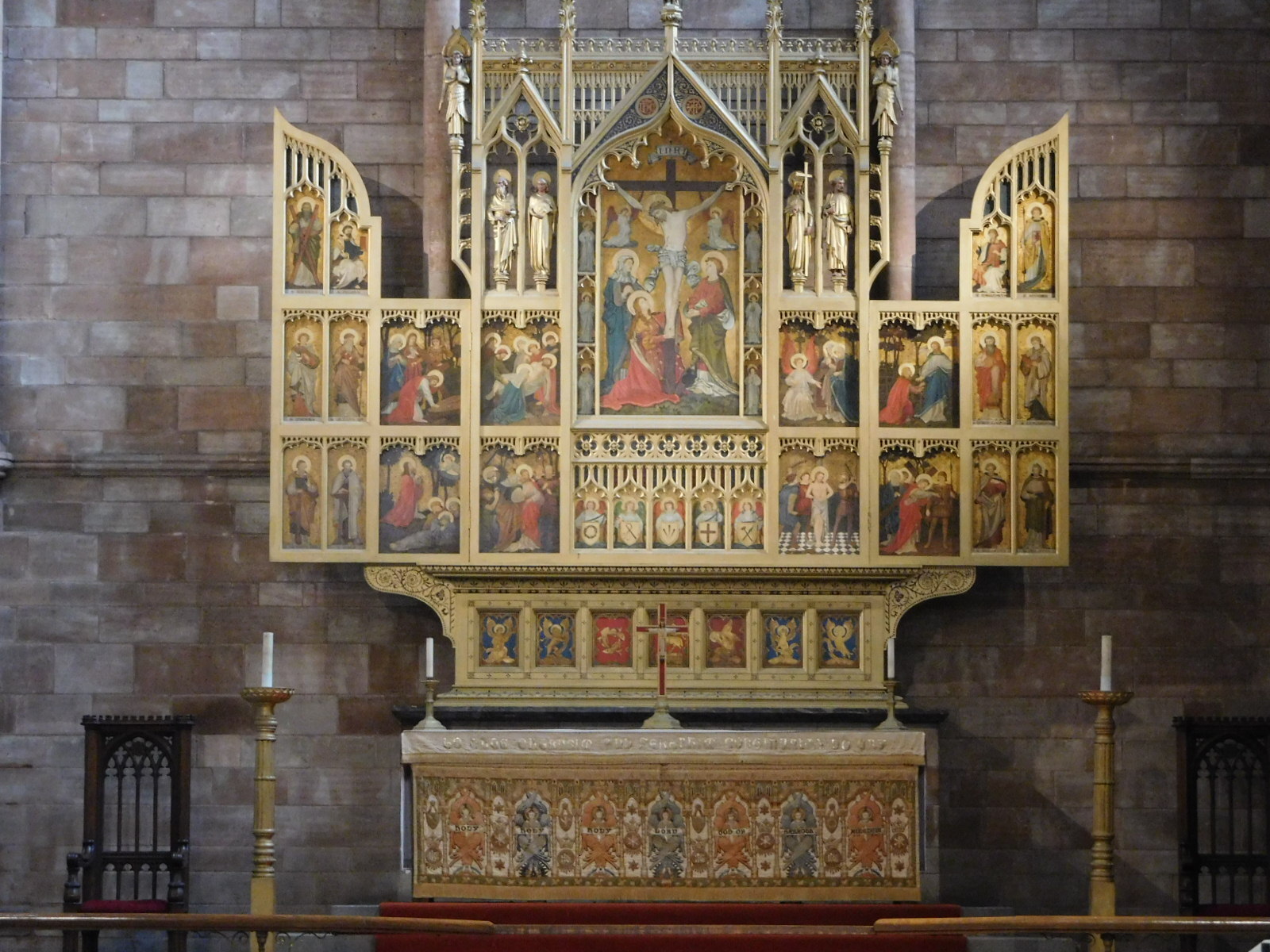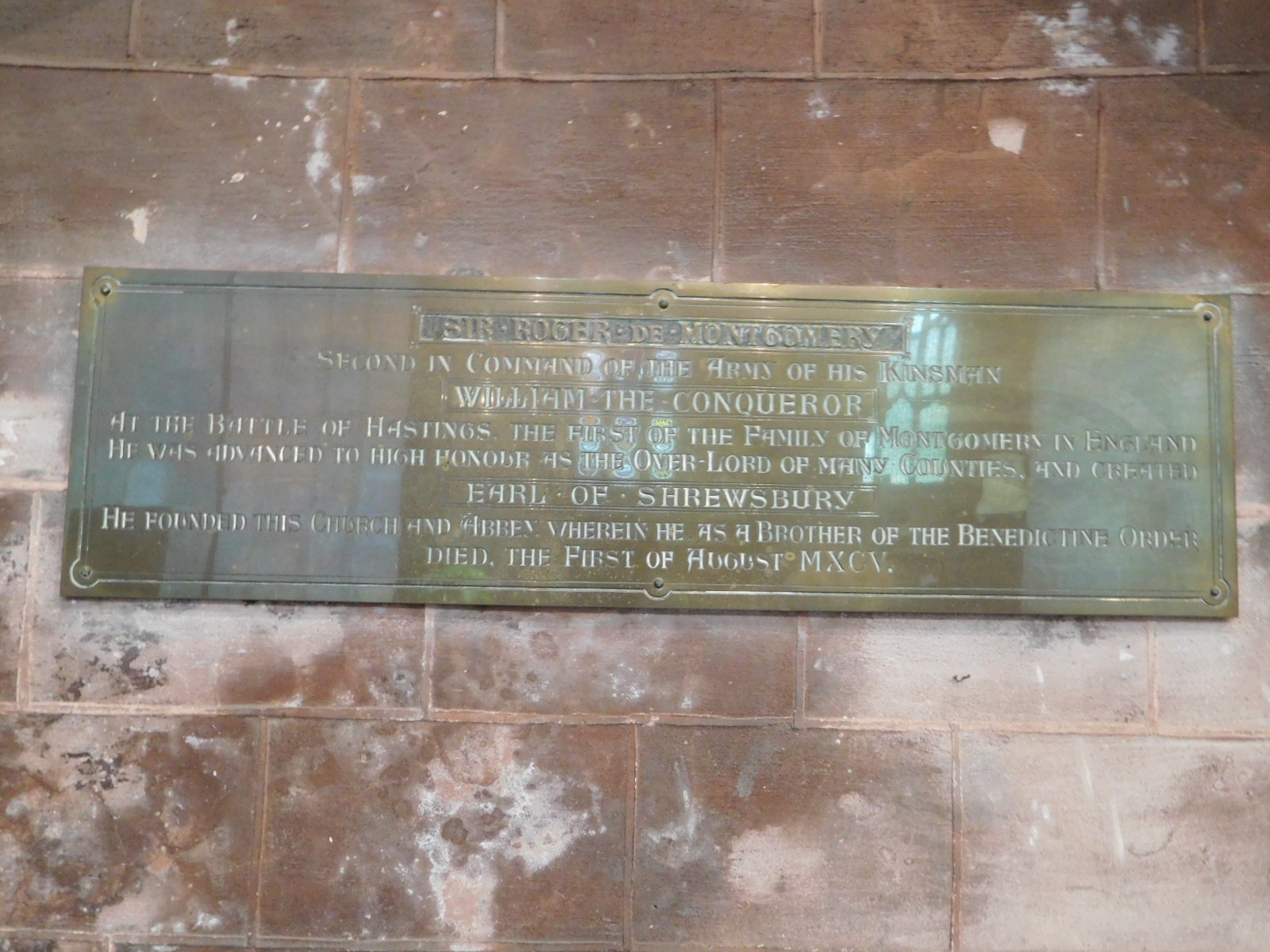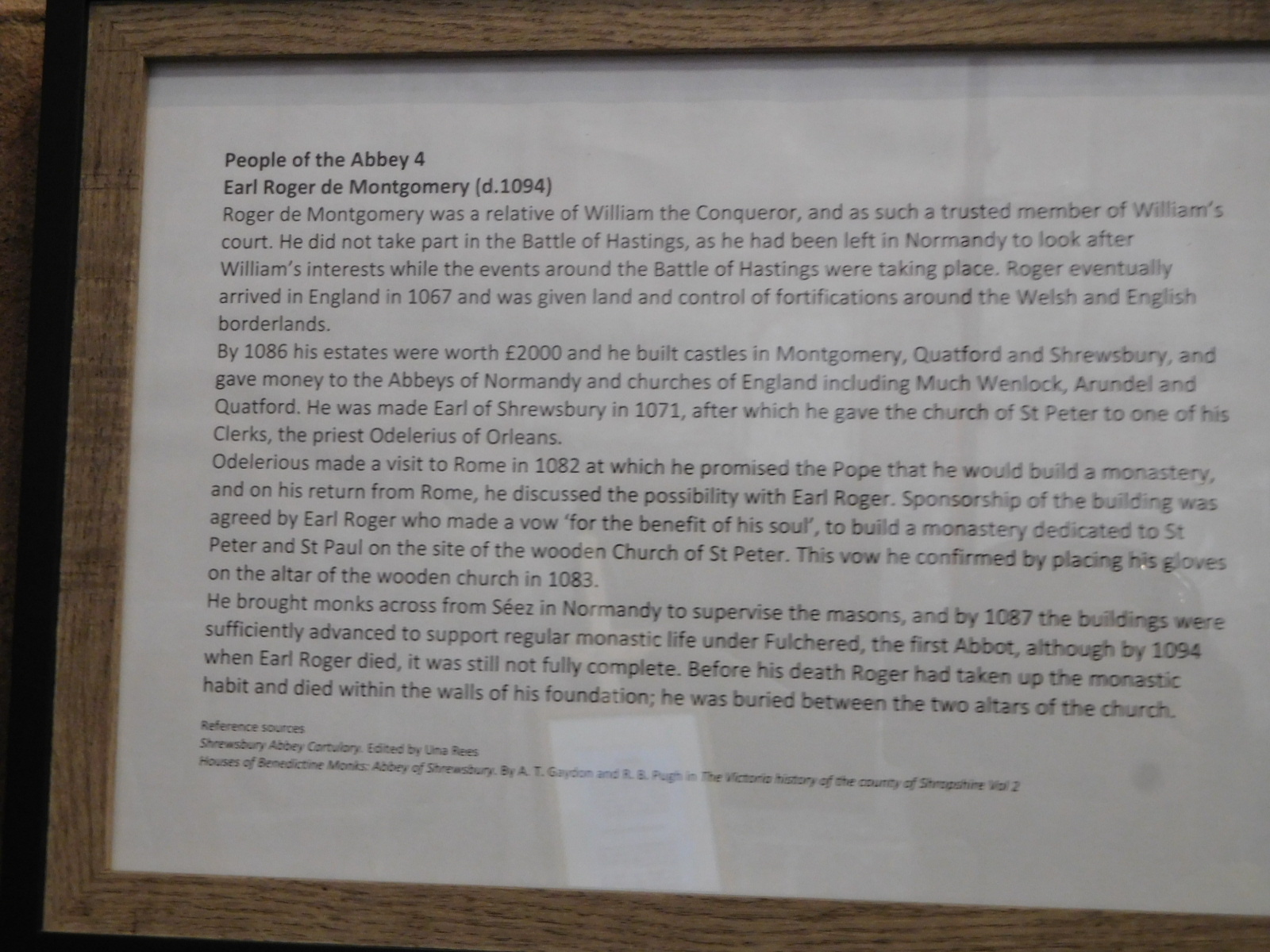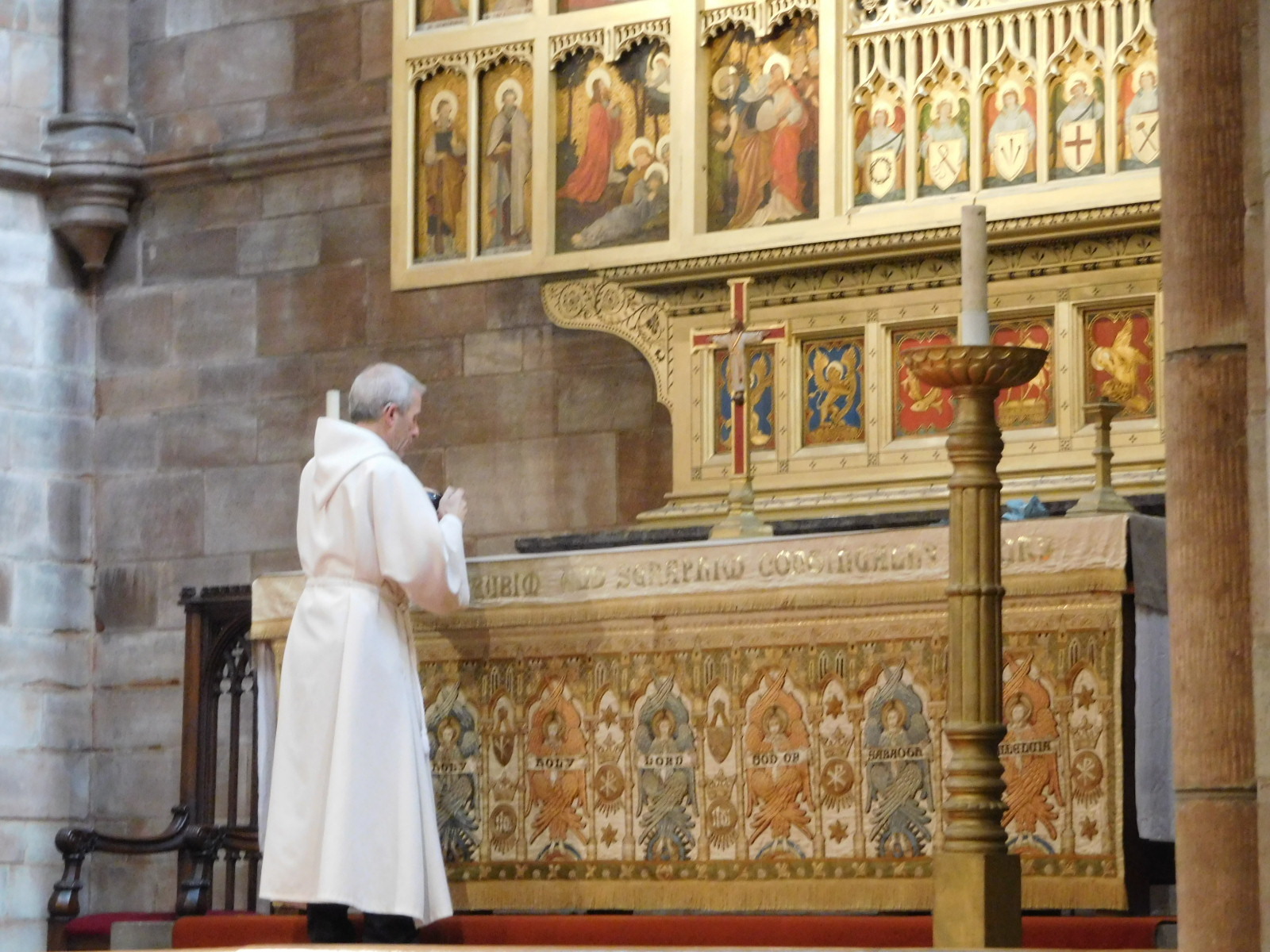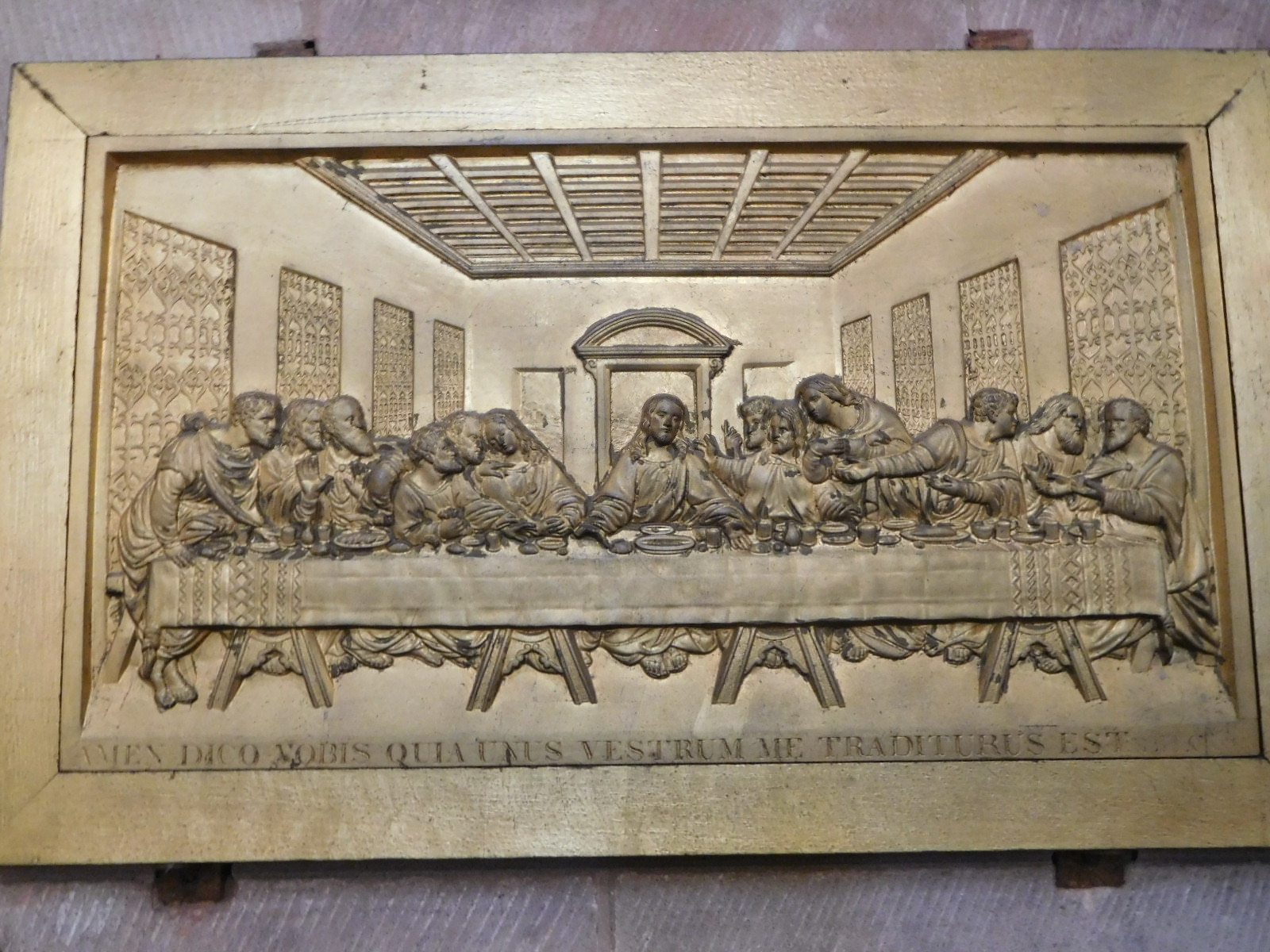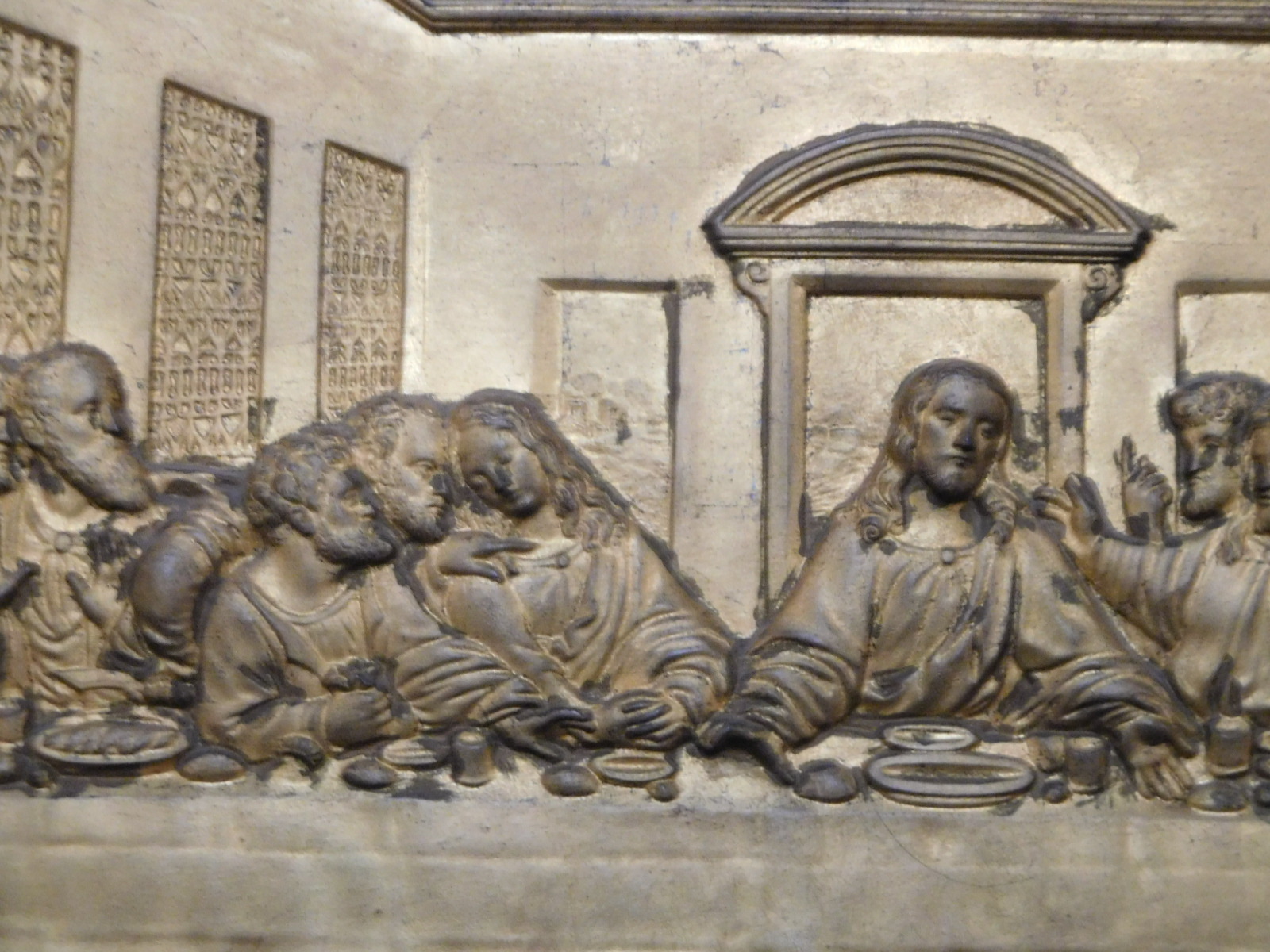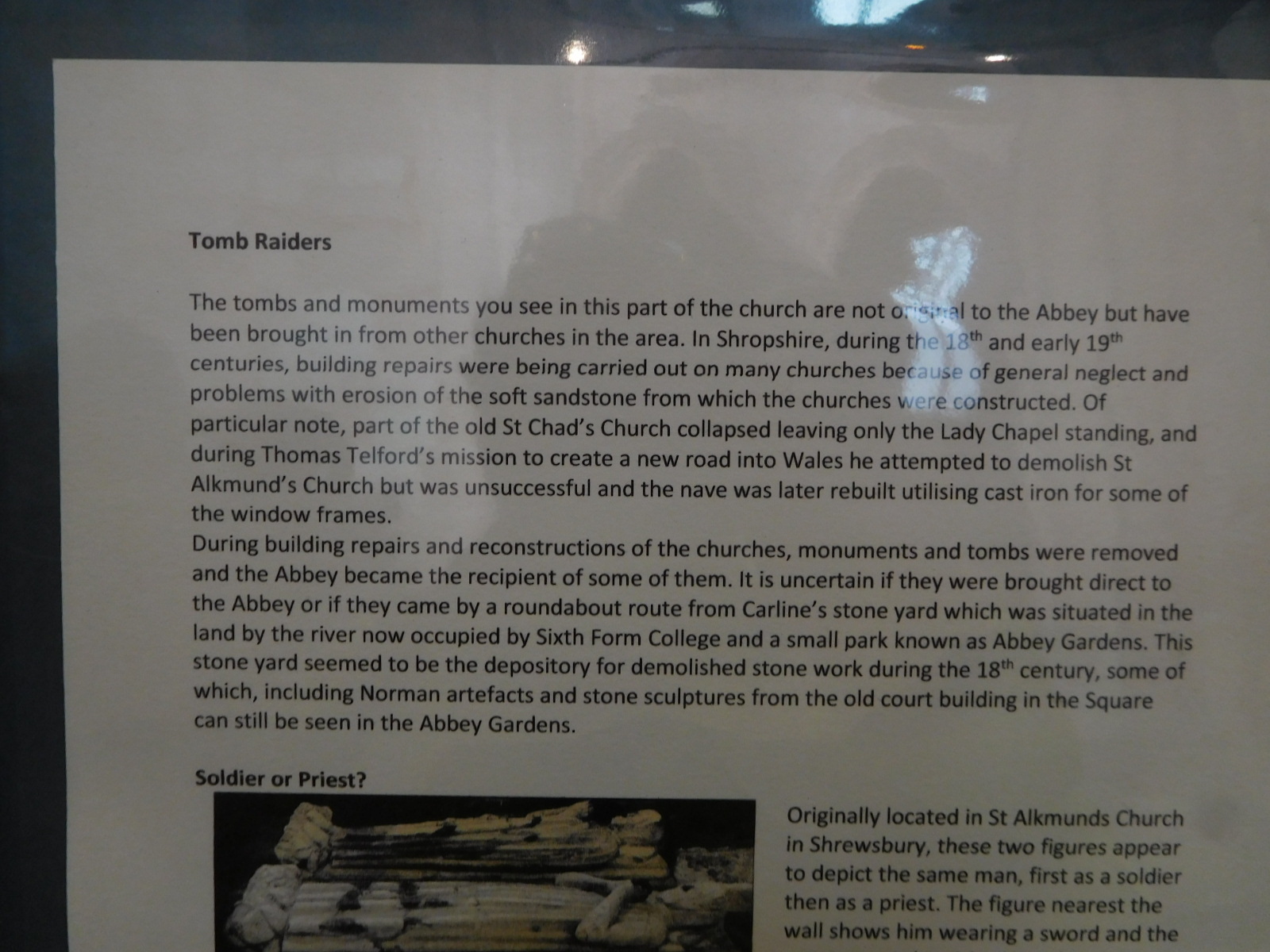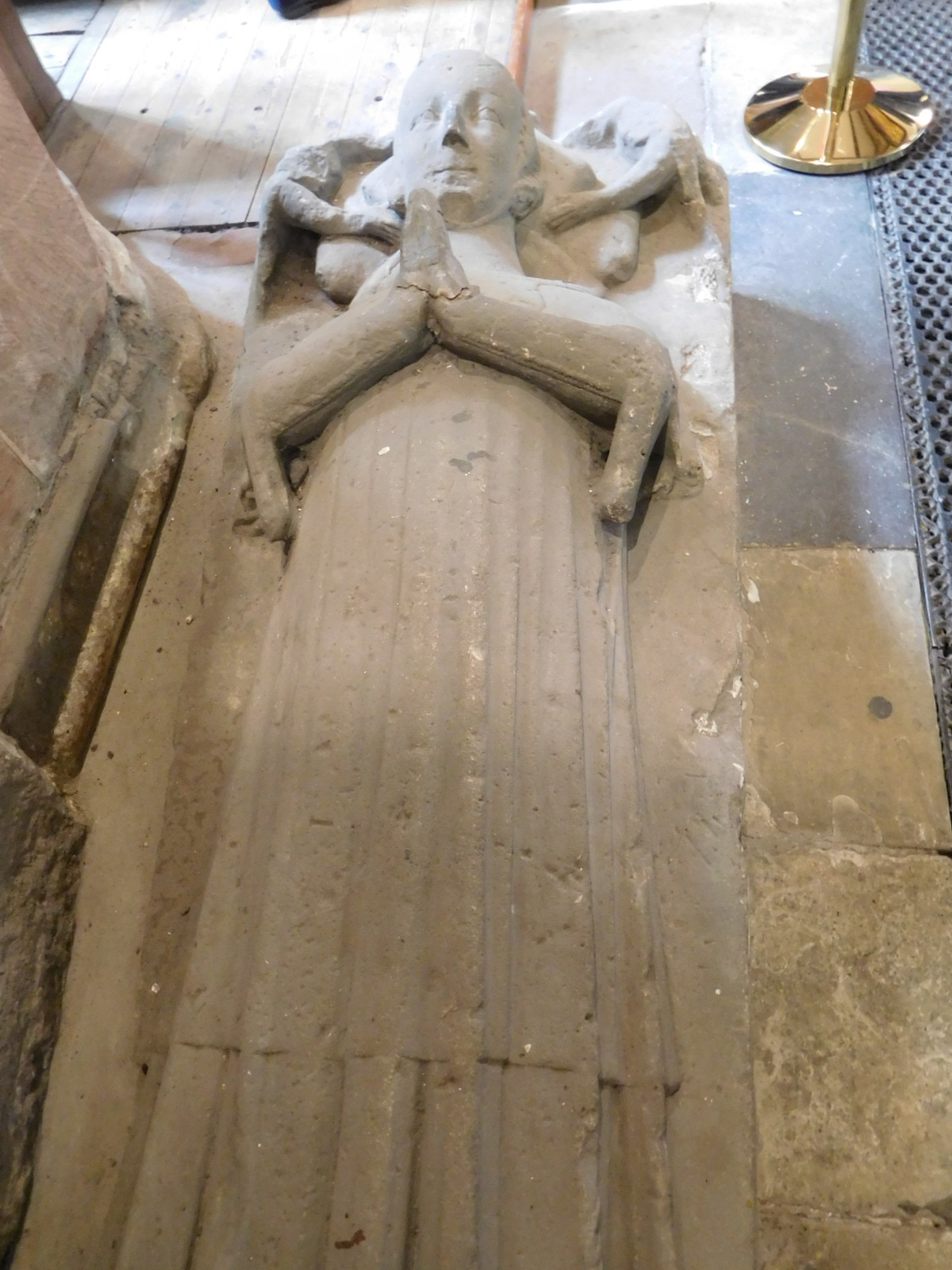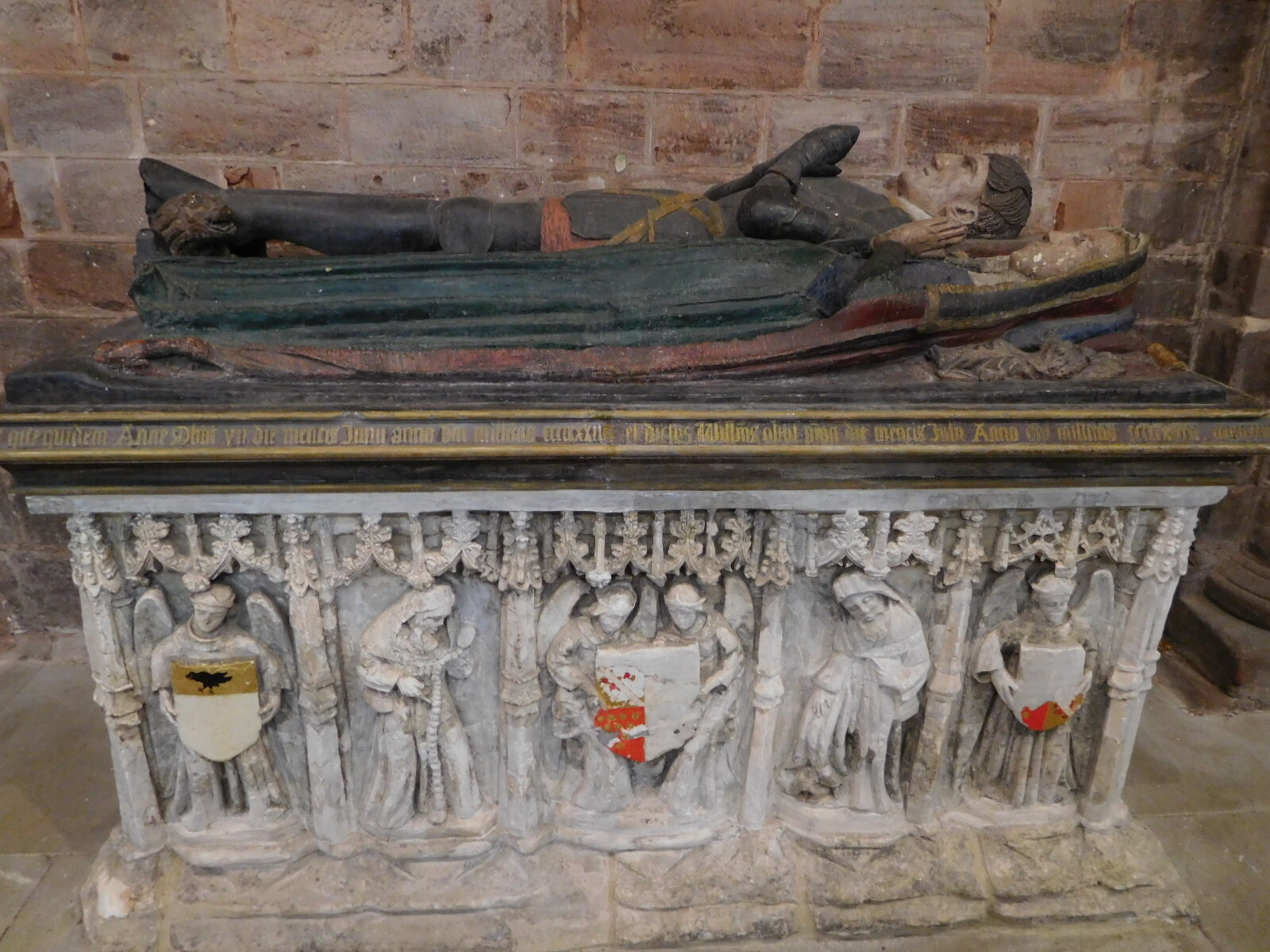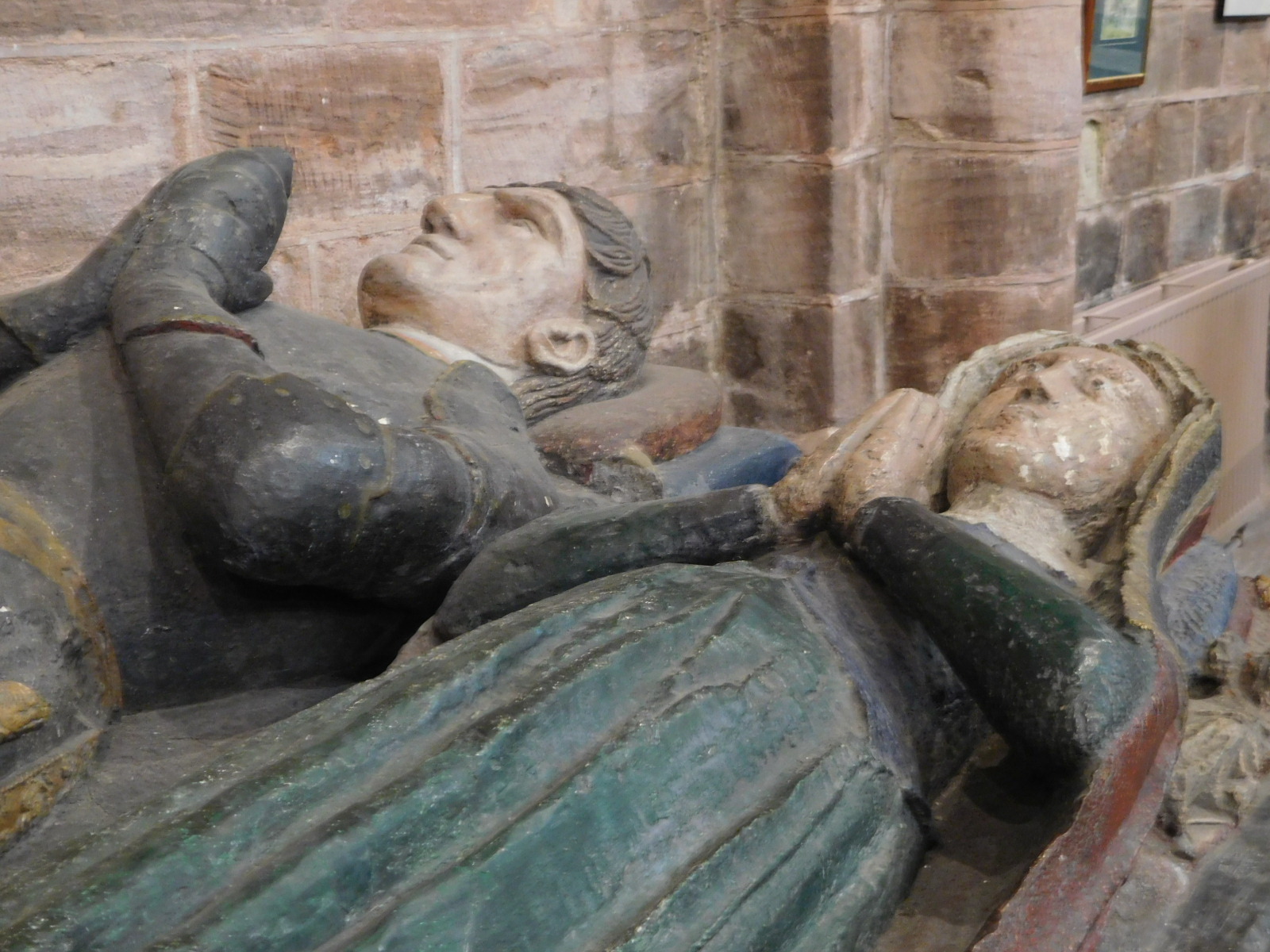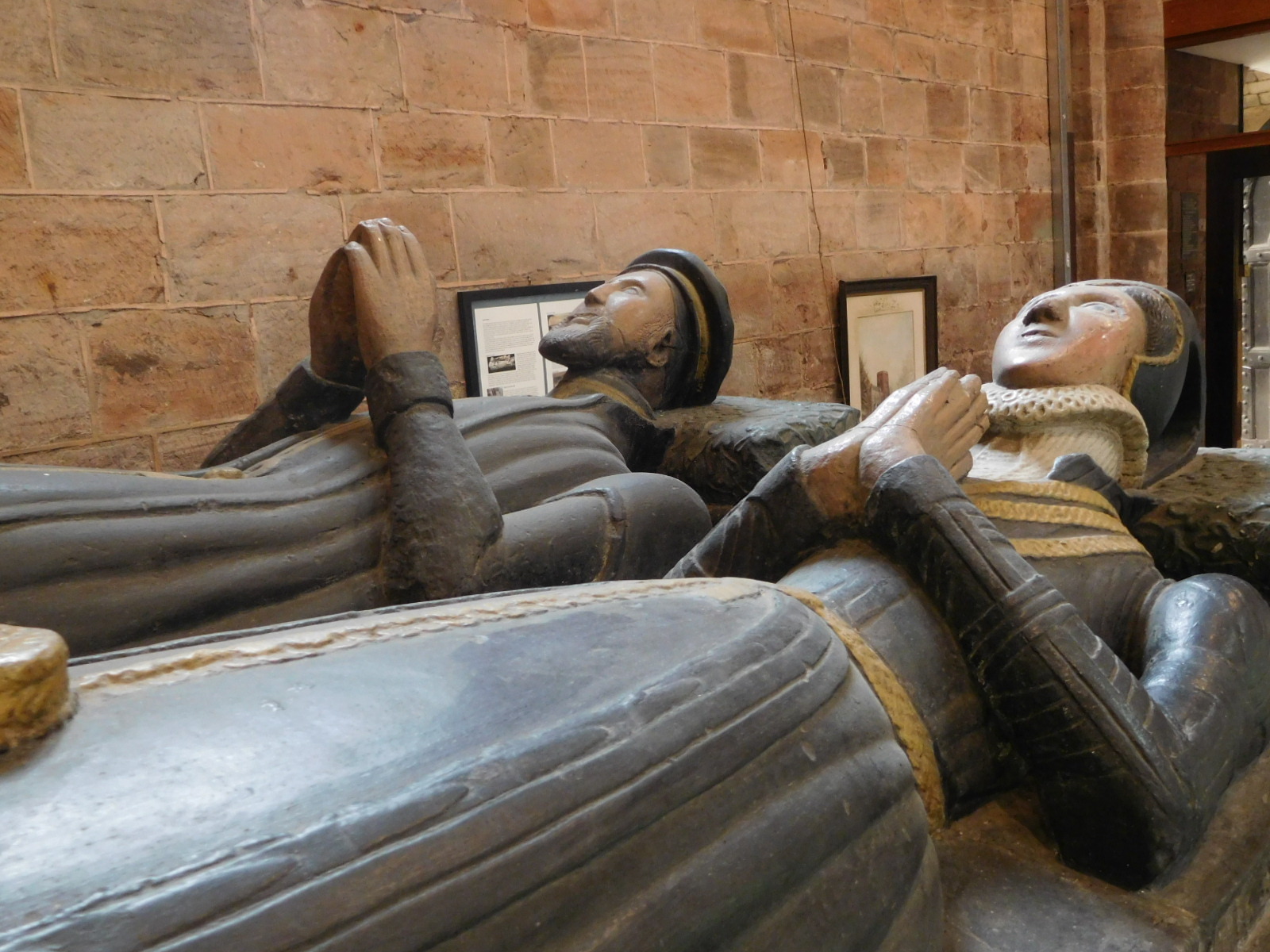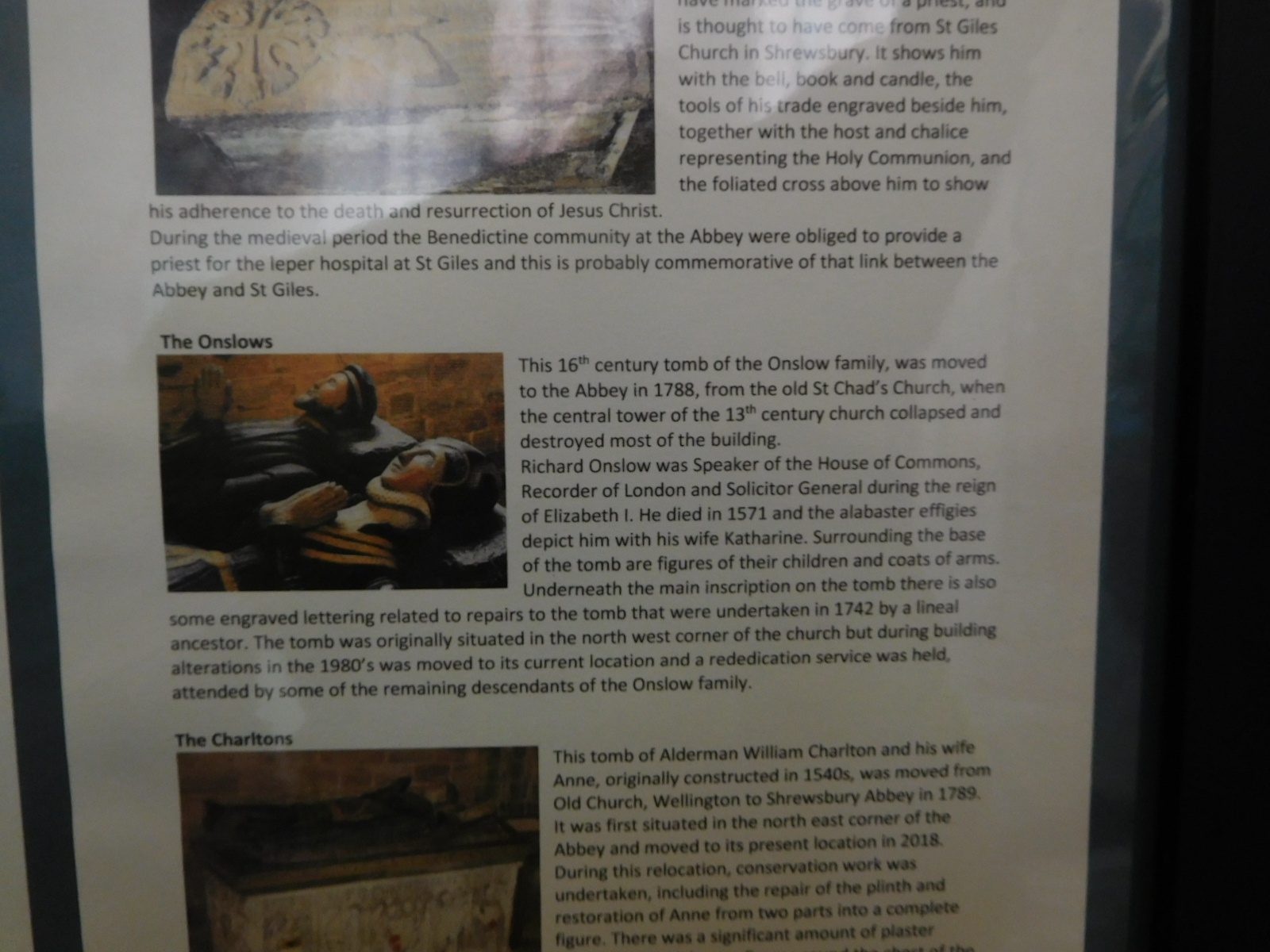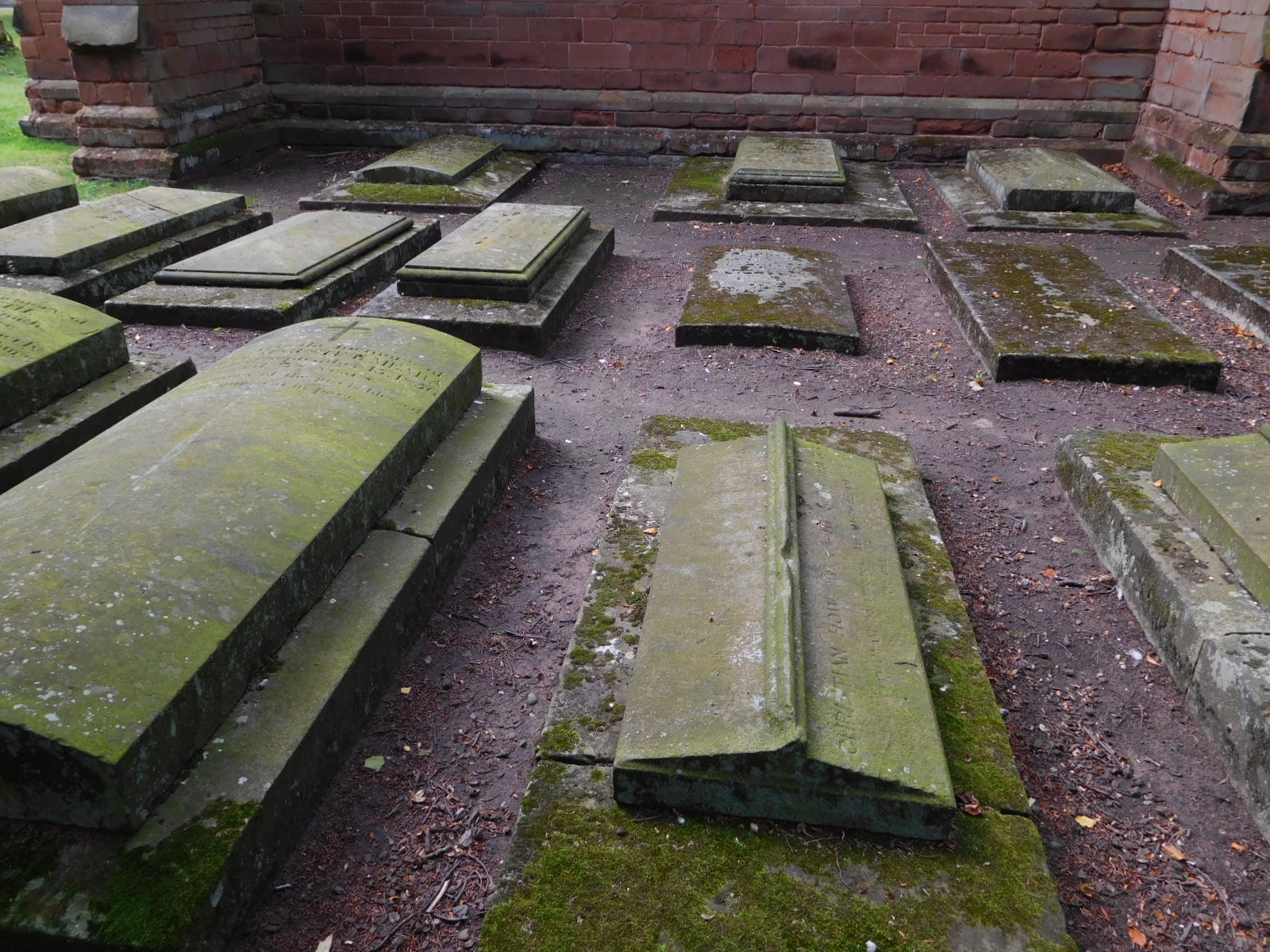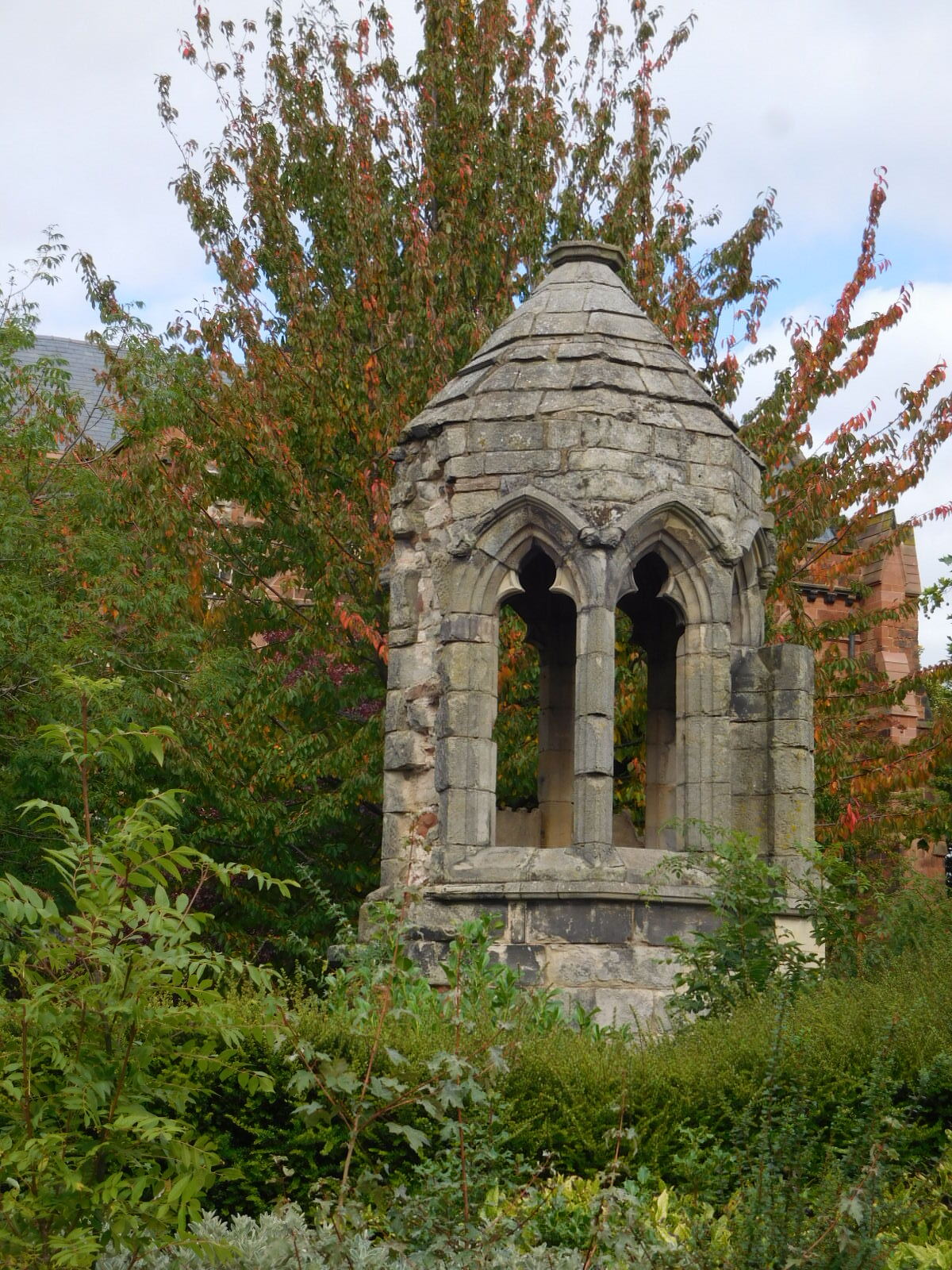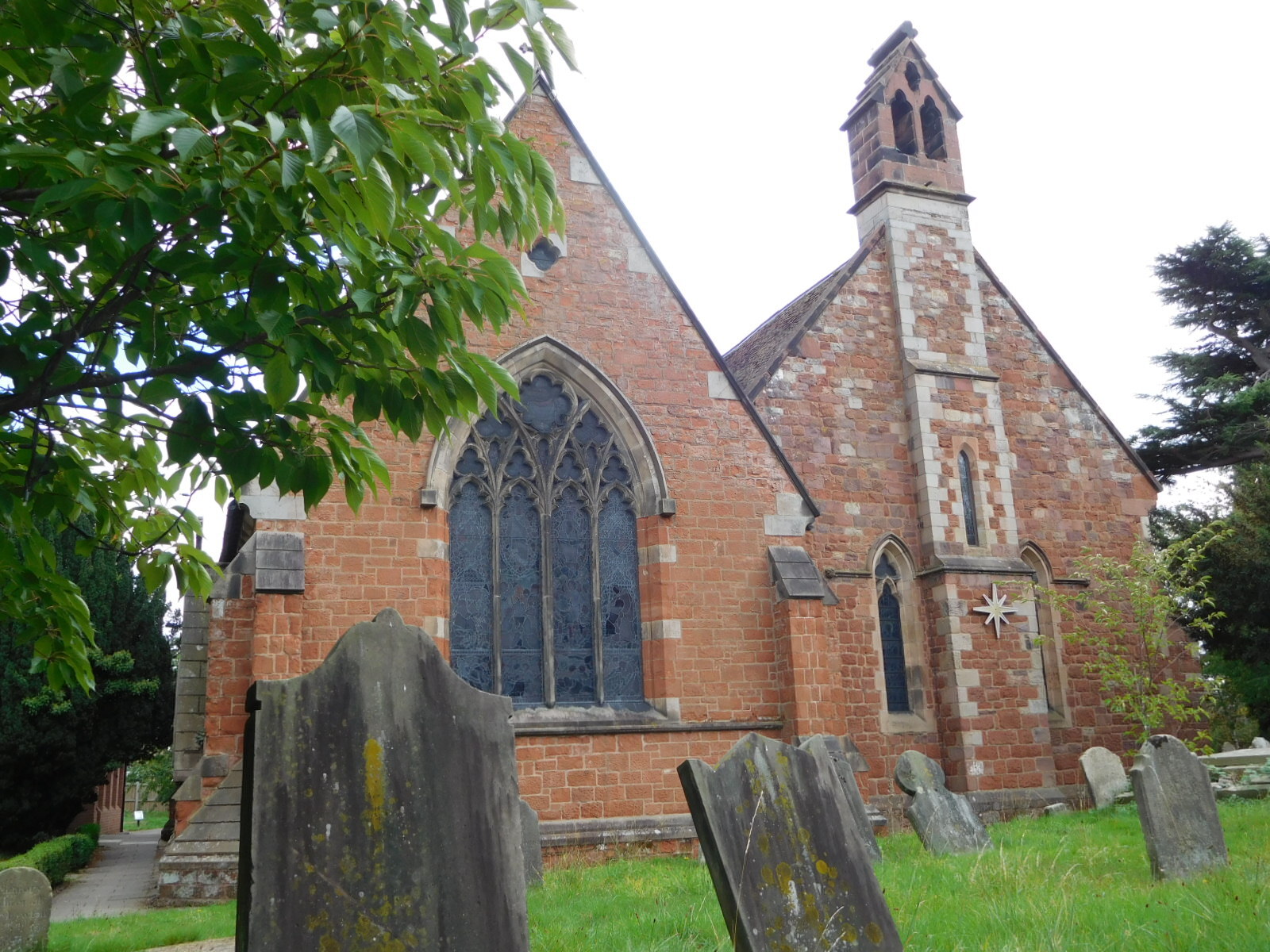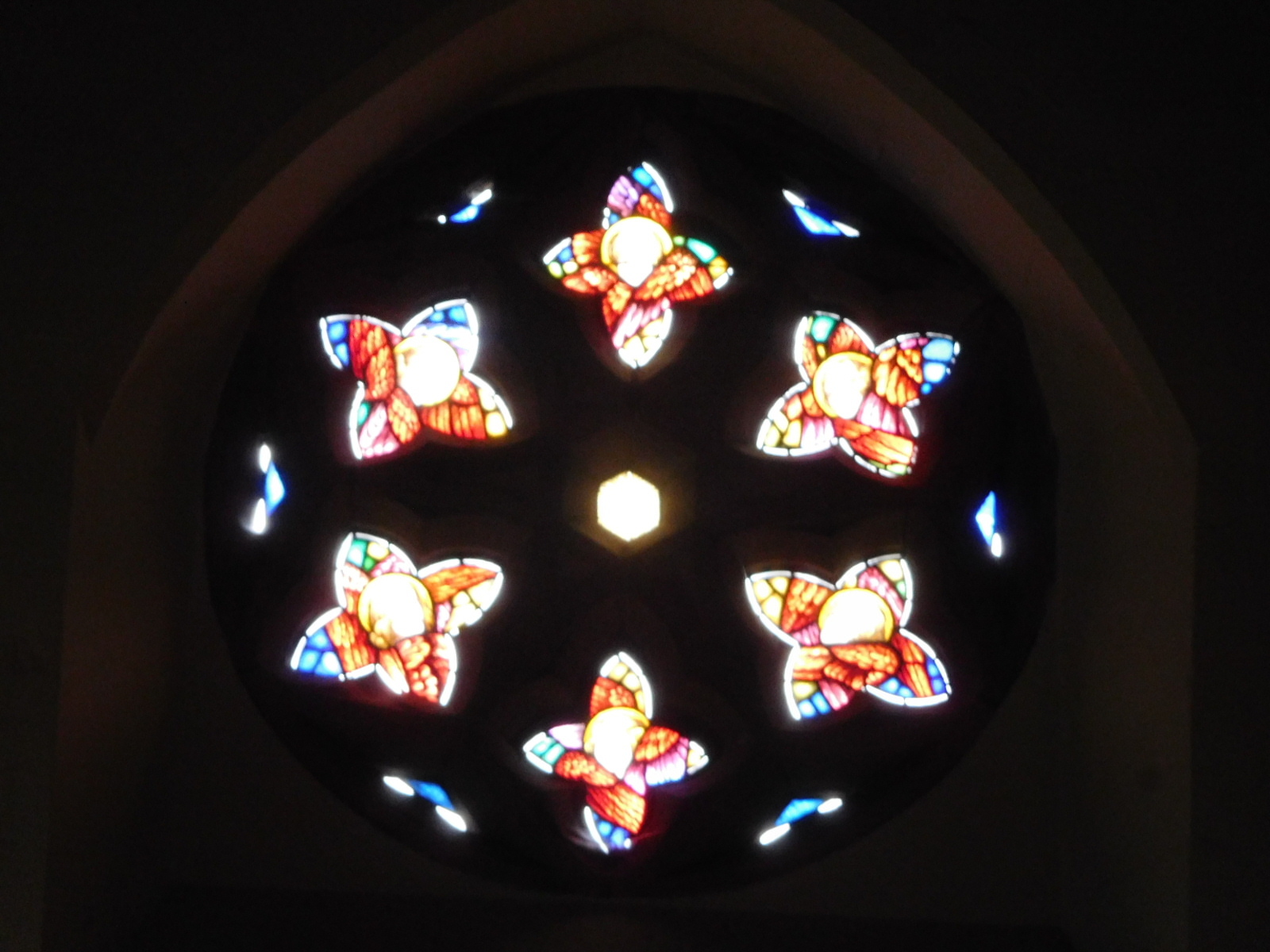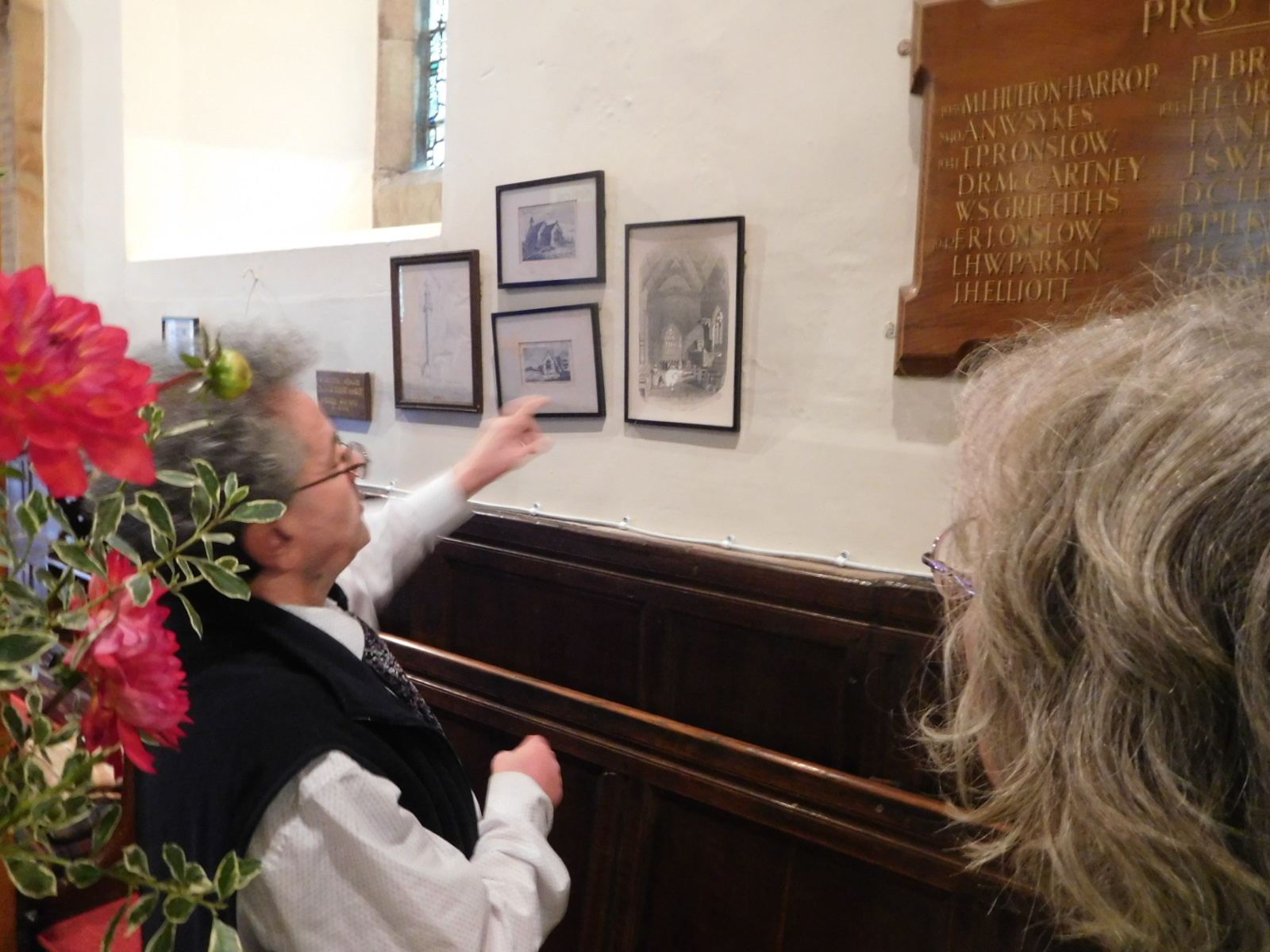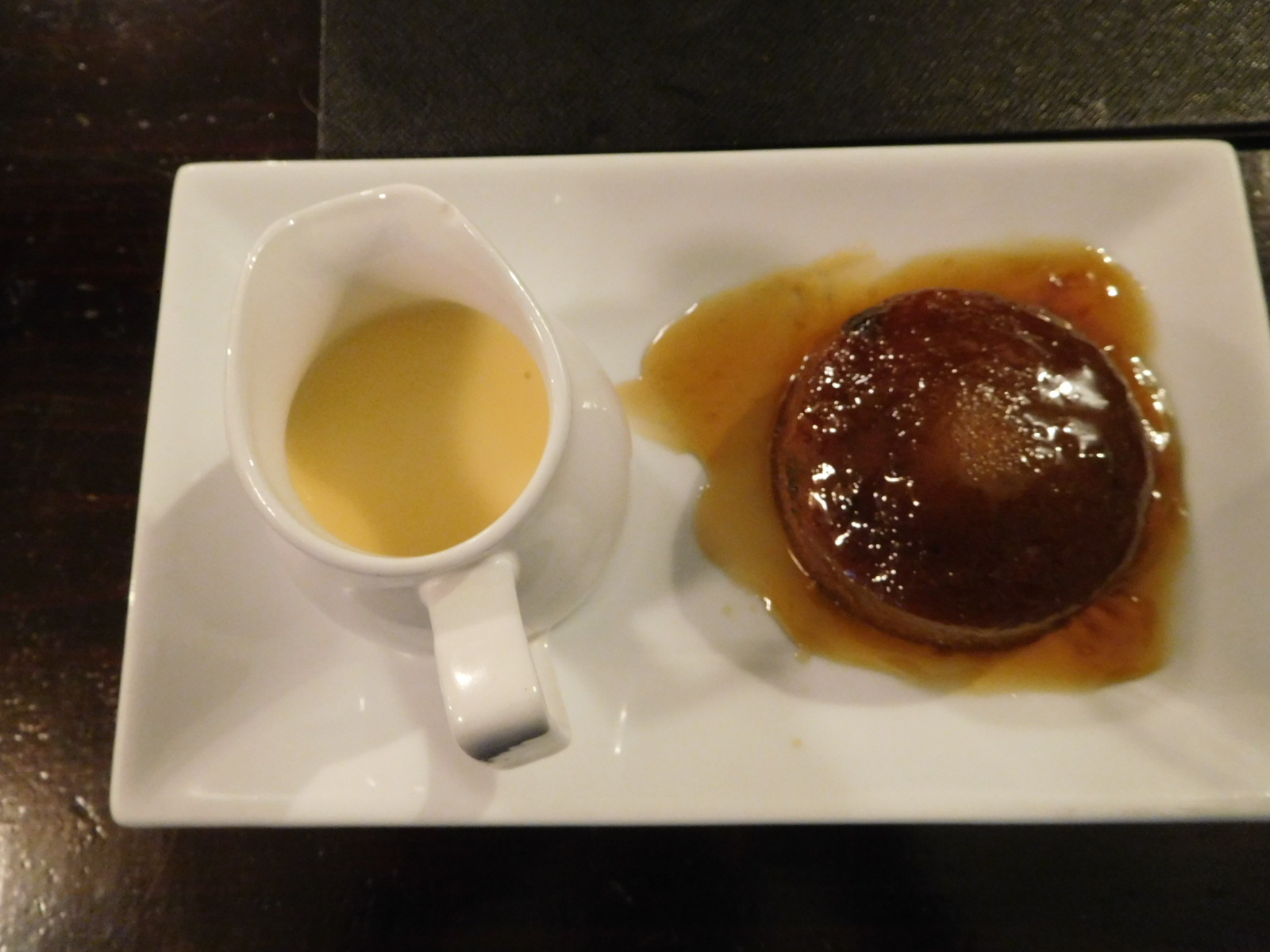October 2, 2022
Day 26: Shrewsbury
| Heart | 2 | Comment | 0 | Link |
Dodie's hopes about Shrewsbury were all fulfilled today, and it was great from almost the beginning, to the end.
The day started out at Greggs. as many have. Greggs food has been a bit contentious with us, since Dodie thinks it's ok, and I have threatened complete physical collapse if I have to eat another Greggs thing. The problem is, Dodie is sort of right in that Greggs, weak as it may be, is sort of the best on offer. What changed today is that Greggs started to look alright to me. I have been in this country too long!
The man ahead of us in the line at Greggs put in his two cents. "Their bacon sandwich is great", he asserted, "I'll show you, they put in so much bacon for the £2!". When he got his package, he ripped it open, and the sandwich, and displayed his haul of bacon. Actually, it was not bad. Like I said, I've been in this country too long. I improved on what the man had by asking for egg in there too. But wait, look, they also have eclairs, and even what we call at home millefeuilles. I better quit this topic now, Greggs has me delirious.
Dodie's key to enjoying Shrewsbury was to be a booklet entitled "In the Footsteps of Brother Cadfael - Three Walks Around Shrewsbury". we were certain that this was available (if at all) only at the Museum and Tourist Information, and today that would only open at 11. Until then, we would walk around town sort of unguided, but we also went to church!
It was immediately apparent that Shrewsbury is everything Stratford was not. Something we read claimed that it has over 600 historically listed buildings. There are Tudor, Elizabethan, or even Norman buildings, and the general ambiance of the town is not modern at all. As close as you could expect in 2022, by looking at the right angle, we often could imagine we were in 1422, or 1622, or suchlike. And as we will soon tell, the Council had done wonders in guiding us to see everything there is.
To get the ball rolling, here is a selection of the kinds of things we were seeing right away.
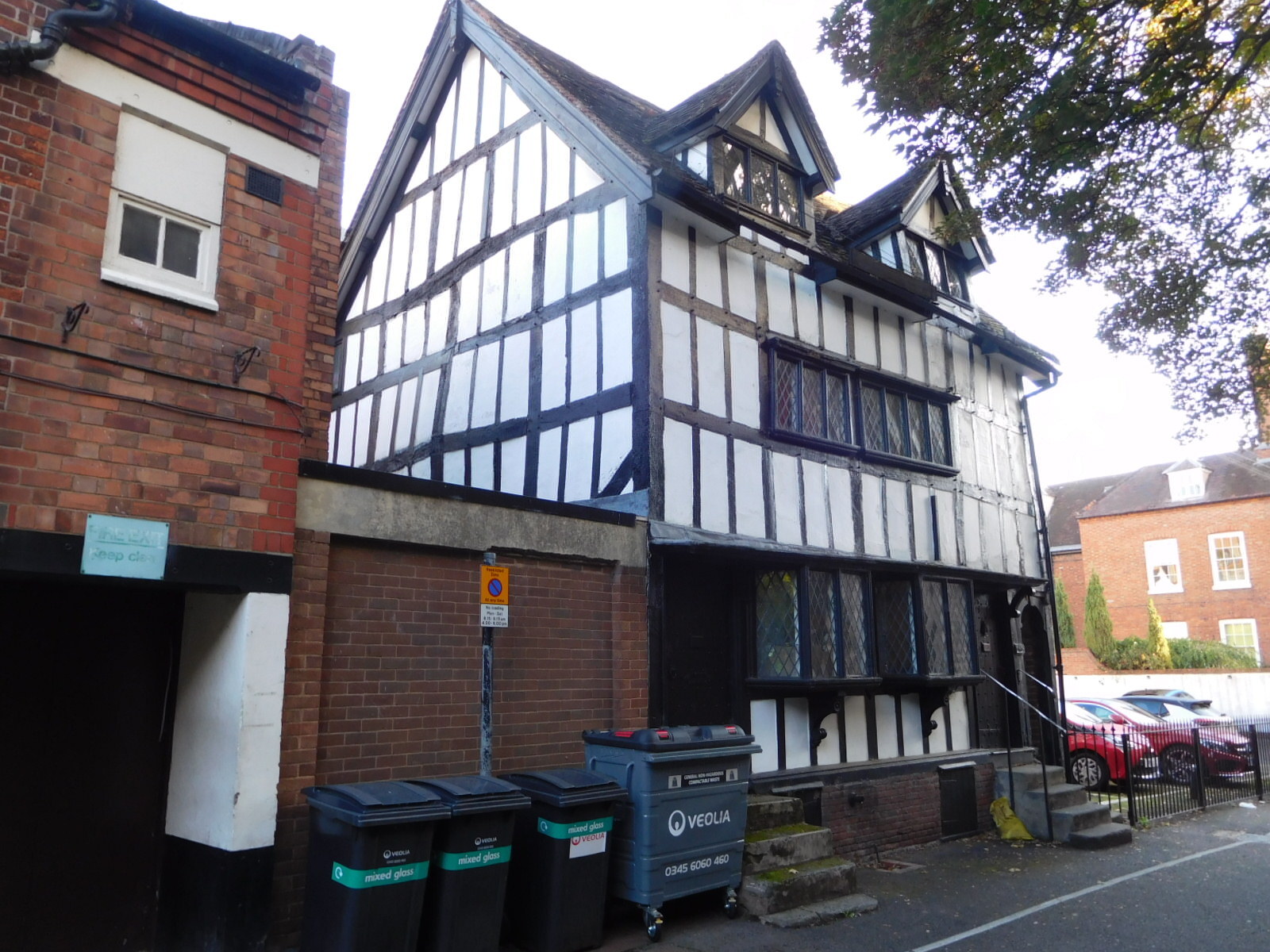
| Heart | 0 | Comment | 1 | Link |
2 years ago
Welcome back - that was 13 uncaptioned photos! (Could've been 600, eh!)
To pick up the story, directly out of Greggs we passed St Mary's church. This apparently has some great stained glass, but it's closed on Sunday. That's because while still a church, it is no longer used for services.
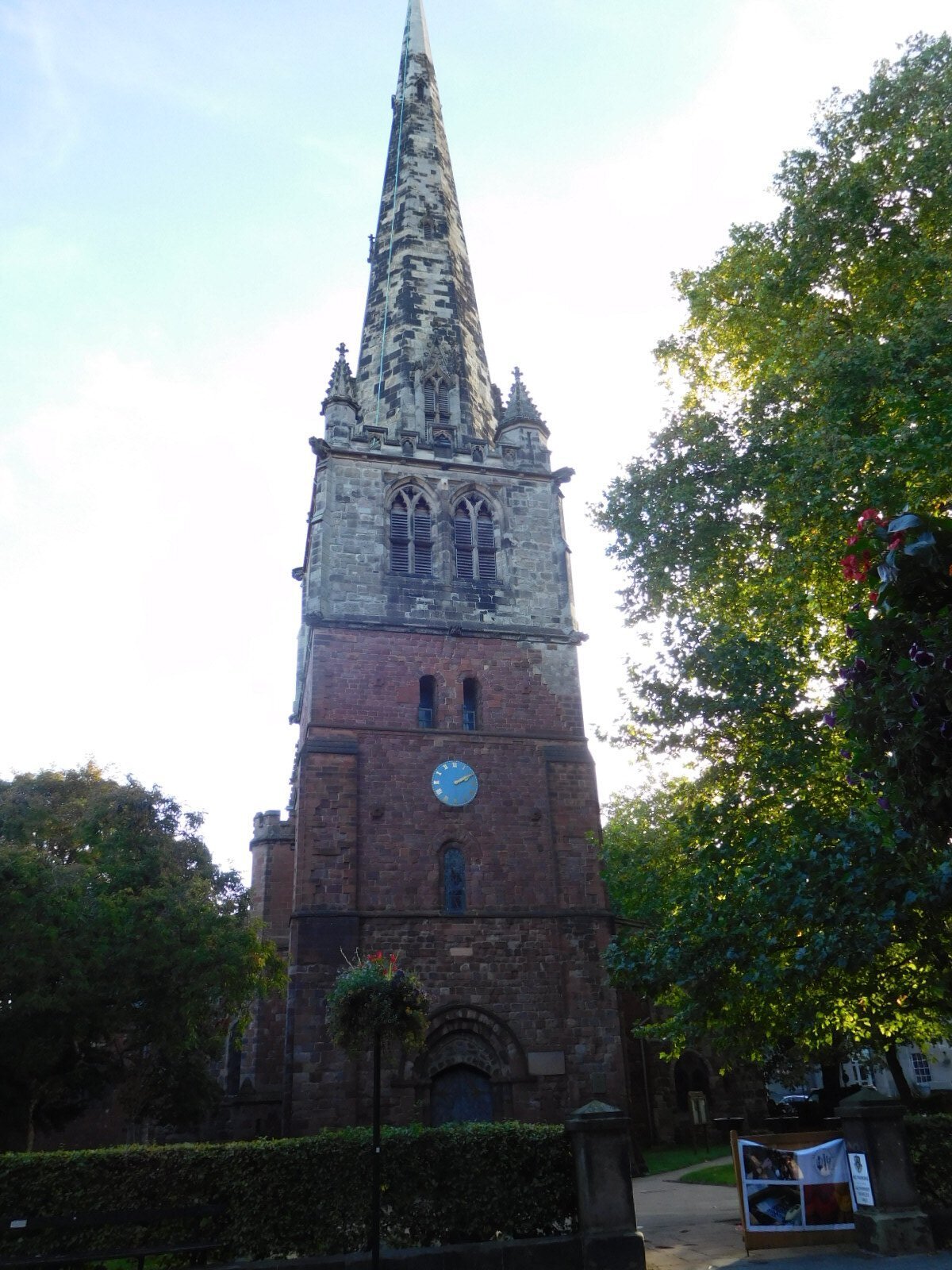
| Heart | 3 | Comment | 1 | Link |
2 years ago
The next thing along is St. Alkmund's church. This had the intriguing feature of an image by the altar that was more photographic than stained glass.
I was remarking on this to Dodie, when a man nearby overheard. He explained that this was actually a painting, named the artist, and described the technique by which it was made. He went on to compare this to other paintings and glass in other churches, making it clear he had made a study of the topic. Like that fellow with the Powder Rebellion topic the other day, he was really into his subject and eager to share. The man turned out to be the church organist. He is on the right in the photo below. The other fellow is the priest.
We decided to stay on to hear our new friend the organist play. We also got the sermon from the priest, who turned up in a spiffy green outfit for the service. (The blurry shots are because of low light inside. I could not really do these stealth shots with flash!)
St. Alkmund's is an Anglican church. The sermon was very well reasoned, and made reference to several points of science. Since today was a harvest festival for the town, the theme was the harvest. The argument was that humans are an insignificant blip in the history of the planet, inferior in survival performance to the insects, and while capable of improving production, and then marketing and distributing the result, are not able to really control the harvest success or the operation of the planet.
Just that seemed rather Darwinian (appropriate in his birthplace), and certainly not the type of line the (catholic) church took in giving the likes of Galileo the gears. The priest went on to give ultimate responsibility for it all to God, recommending that we mere humans practice humility, a word that he pointed out stemmed from "humus", meaning "earth".
When the collection plate came around, we joined in and made a contribution. I think we two yellow apparitions at the back of the church were recognized and treated as outsiders (duh!), but it seemed to me that the contribution made a difference, as we were soon offered hymn books. We politely declined, and instead made our retreat. The organ music had been great, though.
It was now time to make our way to the Tourist Information, to see about that book. We arrived just as the church bell was ringing 11. The man behind the metal grillwork made some reference to only being open at 11, and I asked if 11 came when the ringing began or when it ended. Dodie and the man both opted for when it ended, but the man opened up while the bells were still ringing.
The man turned out to be both very friendly and very knowledgeable about the town and about our desired book. Not only did he have our book of three Cadfael themed walks, but there were ten other pamphlets setting out various other themed walks in the the town.
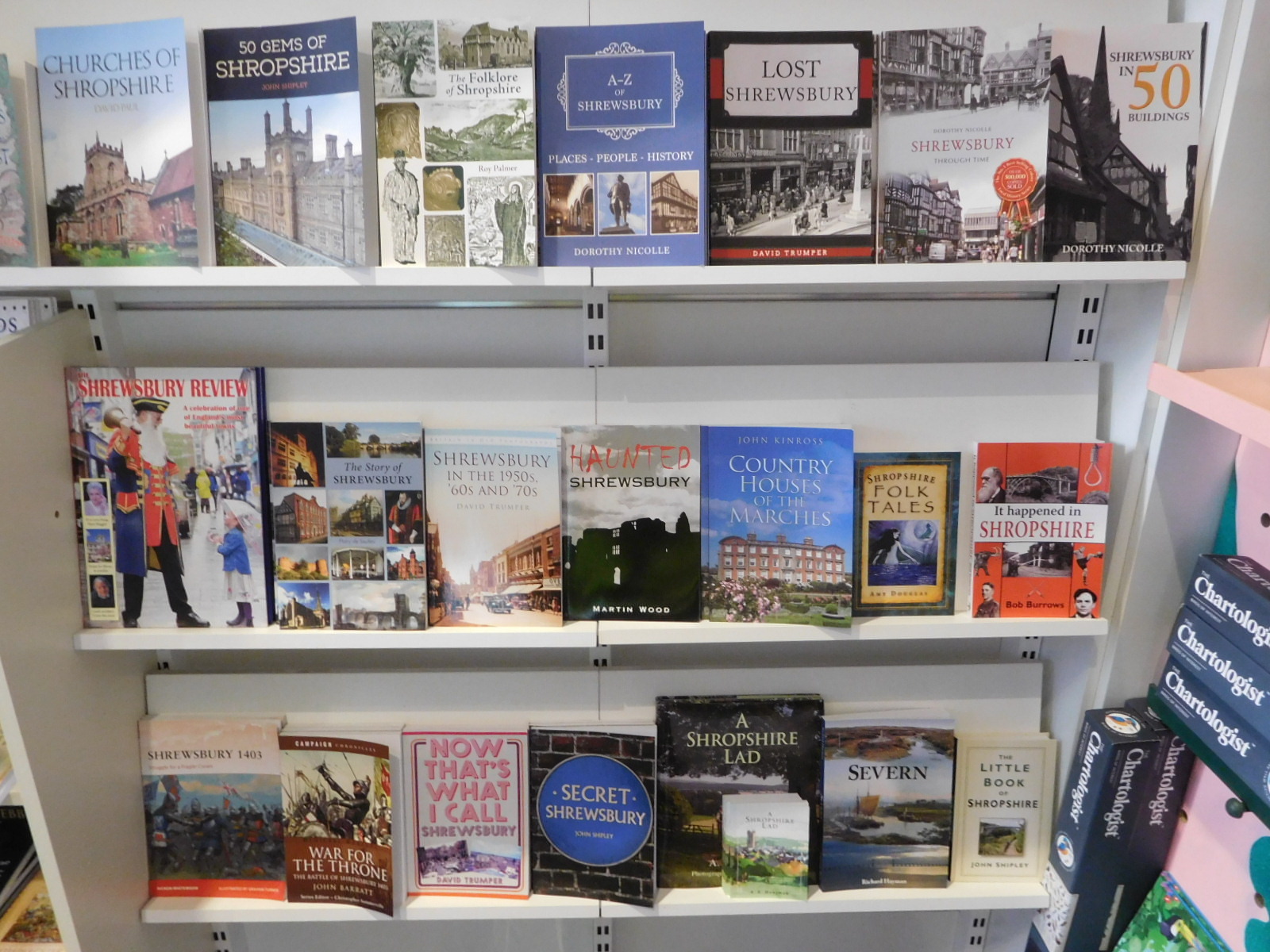
| Heart | 1 | Comment | 0 | Link |
Not only was there all this, but since our new book basically started at the Abbey for its walks, the man took the town map and sketched out a walk for us to get to the walks. We found this approach, and the work that had gone in to the various pamphlets, very wonderful and were sure to tell the fellow so.
Yesterday, as we were hurrying through town trying to beat the 4 o'clock closing time of the TI, I had run up to a policeman for directions. Now outside, we encountered the same man, and we recognized each other. We apologized for having been rather abrupt the day before, and had a nice chat. Later we saw and waved to the same man again. It became clear that he was the total police department, or likely just the tourist police, helping to keep us out of trouble.
The Benedictine Abbey of St. Peter and St. Paul is the centre of the Brother Cadfael tale, the place where he lived and from which he ranged out on his various duties and investigations. It was founded in 1083 by Roger de Montgomery, who was related to William the Conqueror. Montgomery is the same person that built the castle at the other side of town.
By Cadfael's time the Abbey was wealthy, and had become a place of pilgrimage. This is because in 1137 Abbot Heribert sent his prior to negotiate with the Welsh to acquire St Winefride's bones. For religious institutions all over Europe, getting hold of good relics was a key to attracting pilgrims and their money.
The Abbey was also huge at the time, reminding us of Cluny, in France. Today all that remains is the still substantial Abbey church. The Abbey had fallen victim not only to the Dissolution of the Monasteries in 1540 under Henry VIII, but also to more modern factors, like the roadbuilder Telford (whose name is on the town with the roads that gave us grief the other day) who cleared part of the Abbey away to build a road in 1826.
Here is the story of St Winifride, which was so important to the Abbey. You may be able to read it directly onscreen, depending what device you are using. Or, depending on your browser, a right click may give "open in new tab" and in that tab you can easily magnify and read the text. Or, just forget it, and carry on!
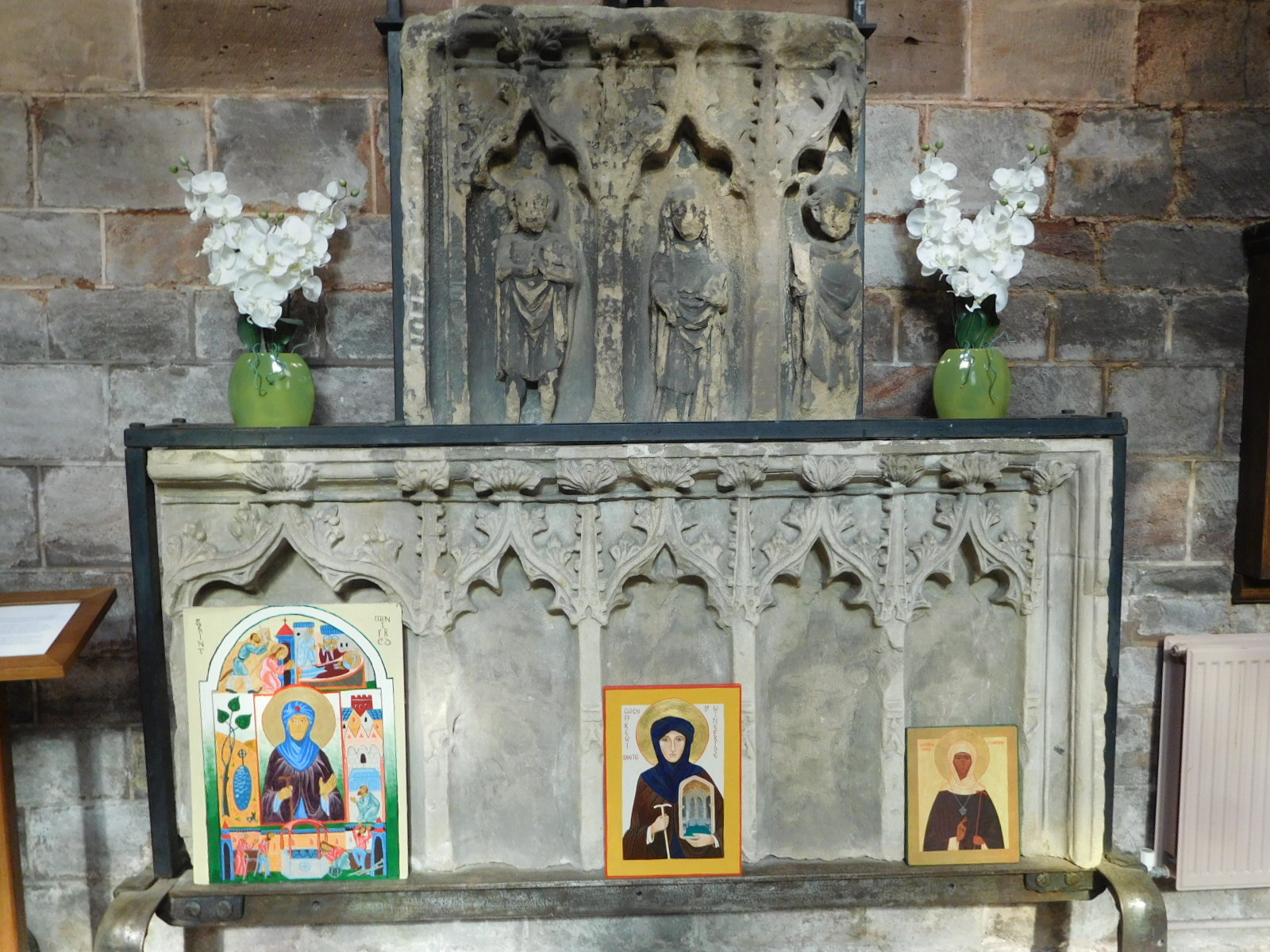
| Heart | 0 | Comment | 0 | Link |
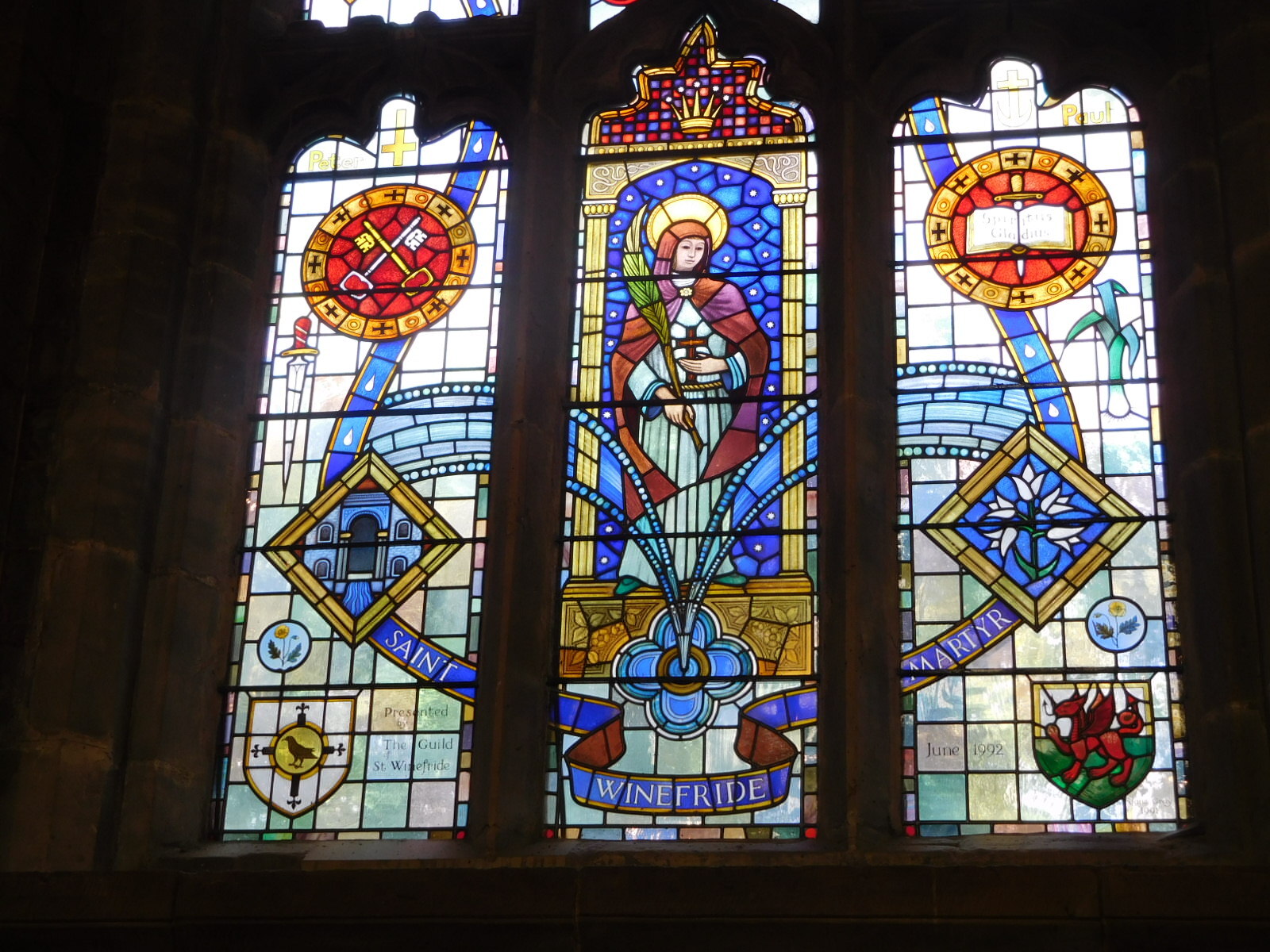
| Heart | 1 | Comment | 0 | Link |
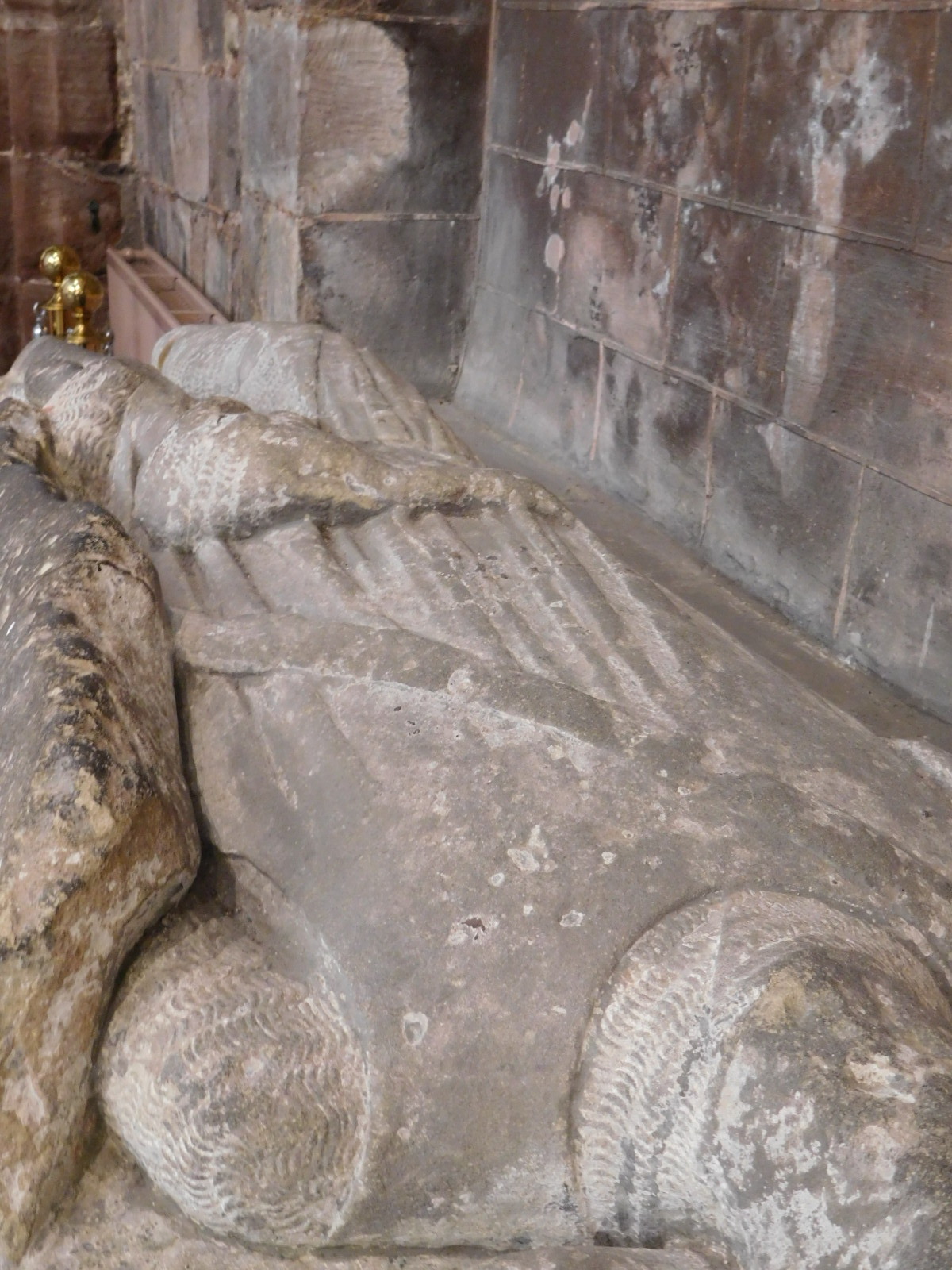
| Heart | 0 | Comment | 0 | Link |
Just by the way, I spotted this Last Supper on a wall, with no reference as to where it came from or how old it is. However for DaVinci Code fans, that figure to Jesus' right sure looks like a girl!
The Abbey contained quite a few spooky carved likenesses, other than that of Montgomery. These are not original to here but were brought from other churches.
Outside the Abbey and around the back was an area where the monks were buried. Those original graves are no doubt invisible now, but there are still a lot of old ones about.
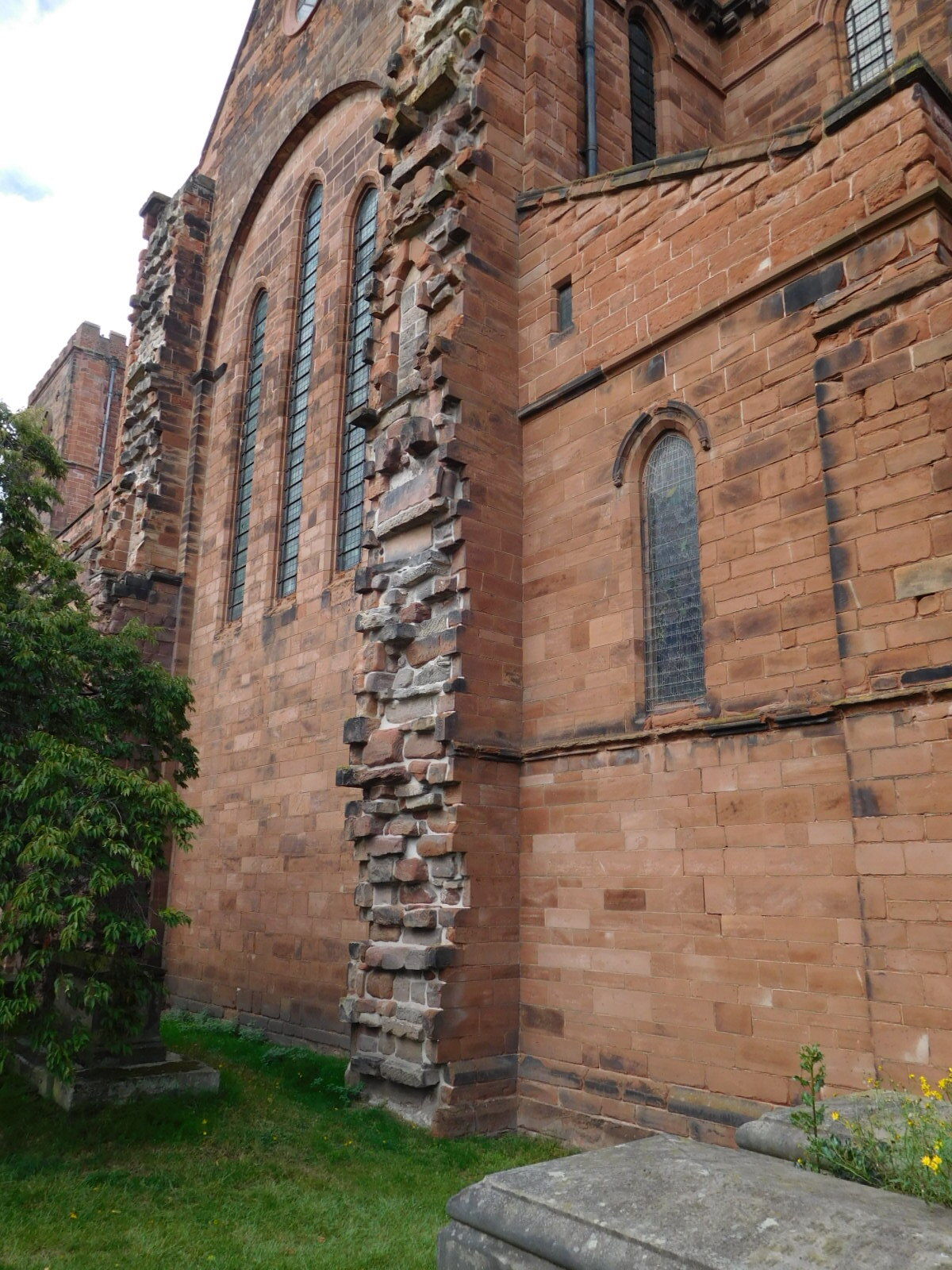
| Heart | 1 | Comment | 0 | Link |
Even way across Telford's bloody road, you can still find the pulpit of a former structure.
Periodically Brother Cadfael would set off through the woods out to the hospital of St. Giles. This is described in the book from the series, "Leper of St Giles". It was actually a fair hike to get out there, but Dodie (with her wallking stick) was into it. We were about to give up, when we did reach the Church of St. Giles. The hospital is no more, but it was just beside.
We went into the church, and I snapped a photo of some stained glass. Then a little man appeared by my elbow and asked if he could help me. I said that we had come to see St. Giles church of the lepers. He replied "Let me show you to the door". Here I thought that we were being given the boot, but in fact the man wanted to tell the story of the church from the beginning, or from the entrance anyway. This turned out to be another of these fellows who really know their subject and are eager to share their knowledge. He was also the church organist.
So we got a complete tour of the church as it was, and a review of how it had been before various changes. One interesting thing was out in the graveyard, being a cross of fairly recent (1952) origin. But as it turns out, the man explained, the base for this was a 15th century basin that was used to sterilize coins during plague times. All this was clearly laid out and illustrated in Dodie's book, something the man had never seen.
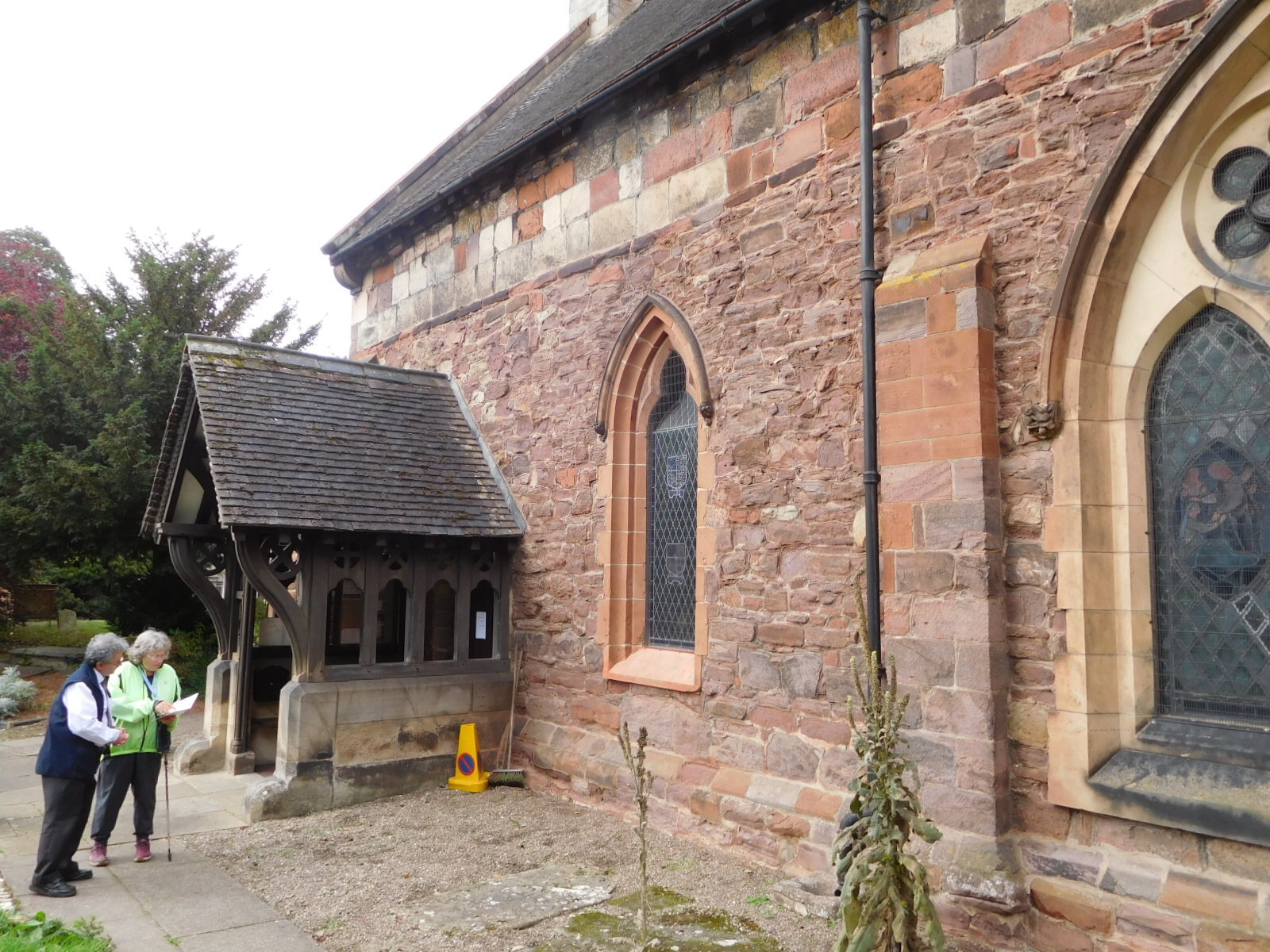
| Heart | 3 | Comment | 0 | Link |
Dodie's book covered 19 sites that are on the way back to and within the town. One way or another we had already hit these sites, and I bet you are relieved that I am not going to go through them now! But one of special note, to me anyway, was the "Post Office" hotel and pub, where we had booked Sunday dinner. Sunday dinner is something we do really like in English food. For one thing, aside from the roast beef and Yorkshire pudding, it always includes actual vegetables.

| Heart | 4 | Comment | 0 | Link |
You kind of have to end a Sunday dinner with sticky pudding. I went to the bar to order one to share, and was presented with the unusual choice of the traditional custard, or ice cream. Thinking to try the wild side, I went for ice cream. I came back to our table and told of this bold executive decision. It was not well received! My partner is sometimes so darn traditional. I went back to the bar to correct my "blunder" but was told that no, the order was already with the kitchen. I must have looked so devastated that the bar keeper ran back and changed what otherwise was inevitable.
He later explained to us that even our sticky pudding with custard was not fully traditional, and that we should have gone with the bread and butter pudding (presumably with custard!). Ok, next time.
p.s. The Brother Cadfael mysteries. Dodie will re-read them all, with a greater appreciation of where they refer to:
1. A Morbid Taste for Bones (1977)
2. One Corpse Too Many (1980)
3. Monk's Hood (1980)
4. St. Peter's Fair (1981)
5. The Leper of Saint Giles (1981)
6. The Virgin in the Ice (1982)
7. The Sanctuary Sparrow (1983)
8. The Devil's Novice (1983)
9. Dead Man's Ransom (1984)
10. The Pilgrim of Hate (1984)
11. An Excellent Mystery (1985)
12. The Raven in the Foregate (1986)
13. The Rose Rent (1986)
14. The Hermit of Eyton Forest (1987)
15. The Confession of Brother Haluin (1988)
16. The Heretic's Apprentice (1989)
17. The Potter's Field (1989)
18. The Summer of the Danes (1991)
19. The Holy Thief (1992)
20. Brother Cadfael's Penance (1994)
Today's ride: 16 km (10 miles)
Total: 903 km (561 miles)
| Rate this entry's writing | Heart | 11 |
| Comment on this entry | Comment | 4 |
2 years ago
2 years ago
2 years ago


